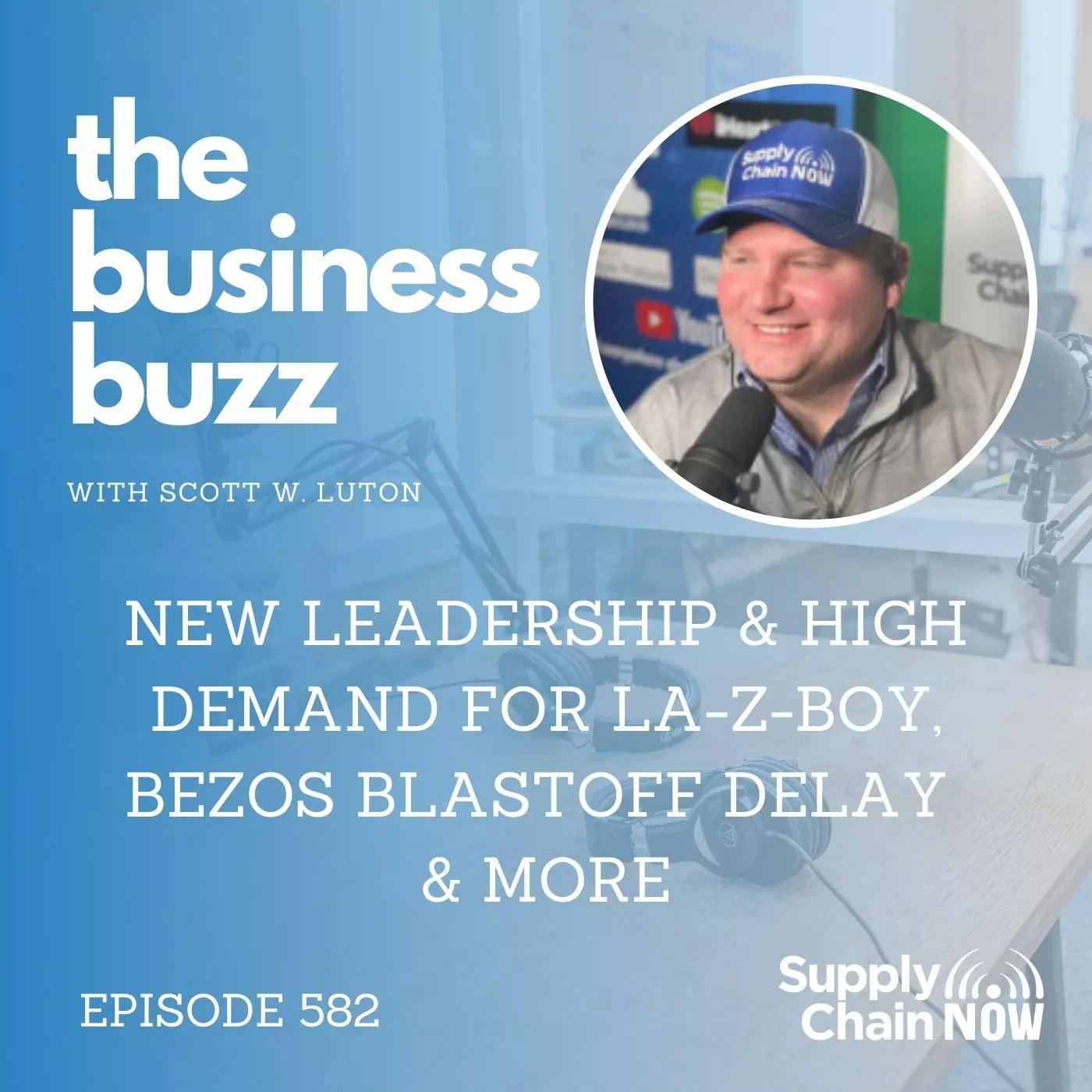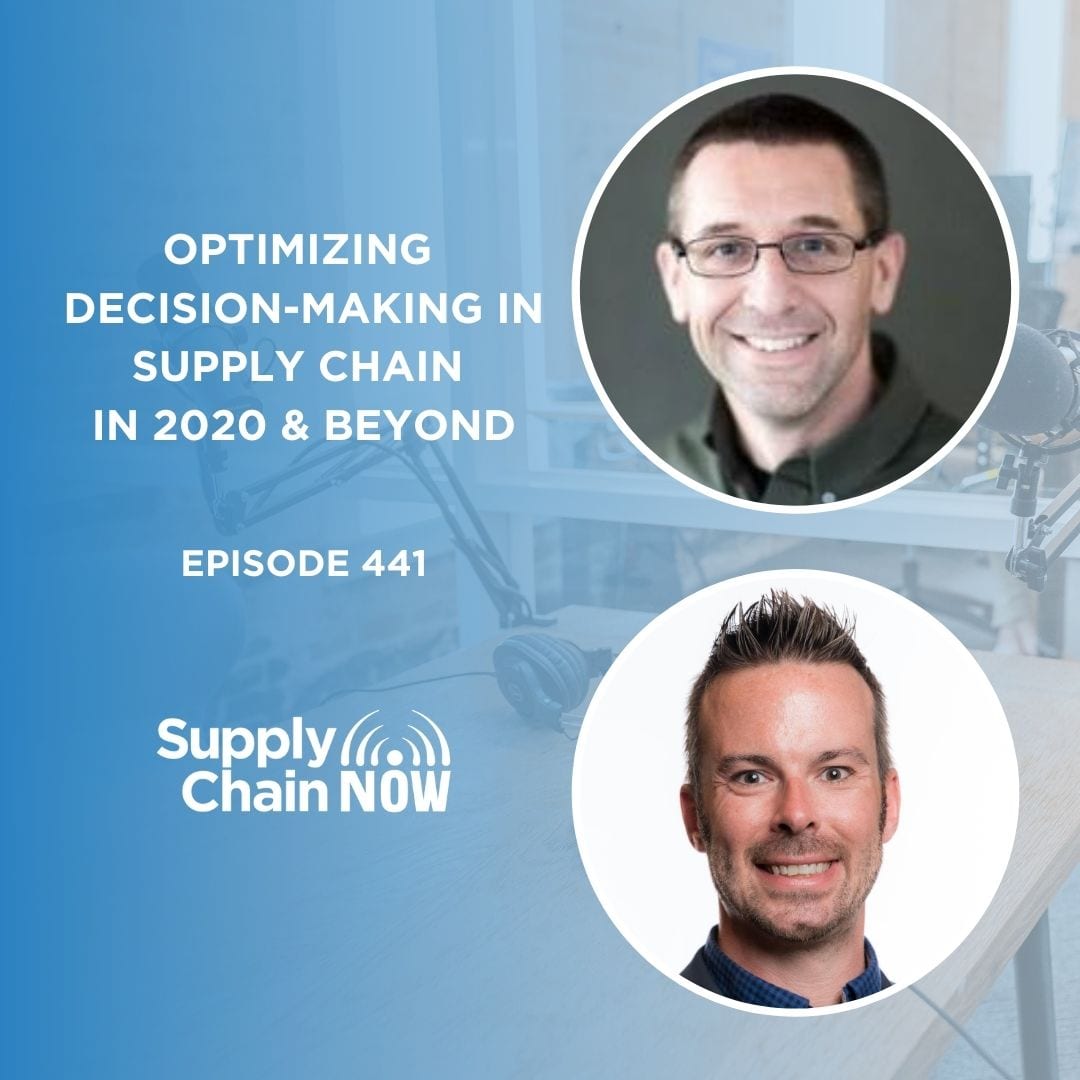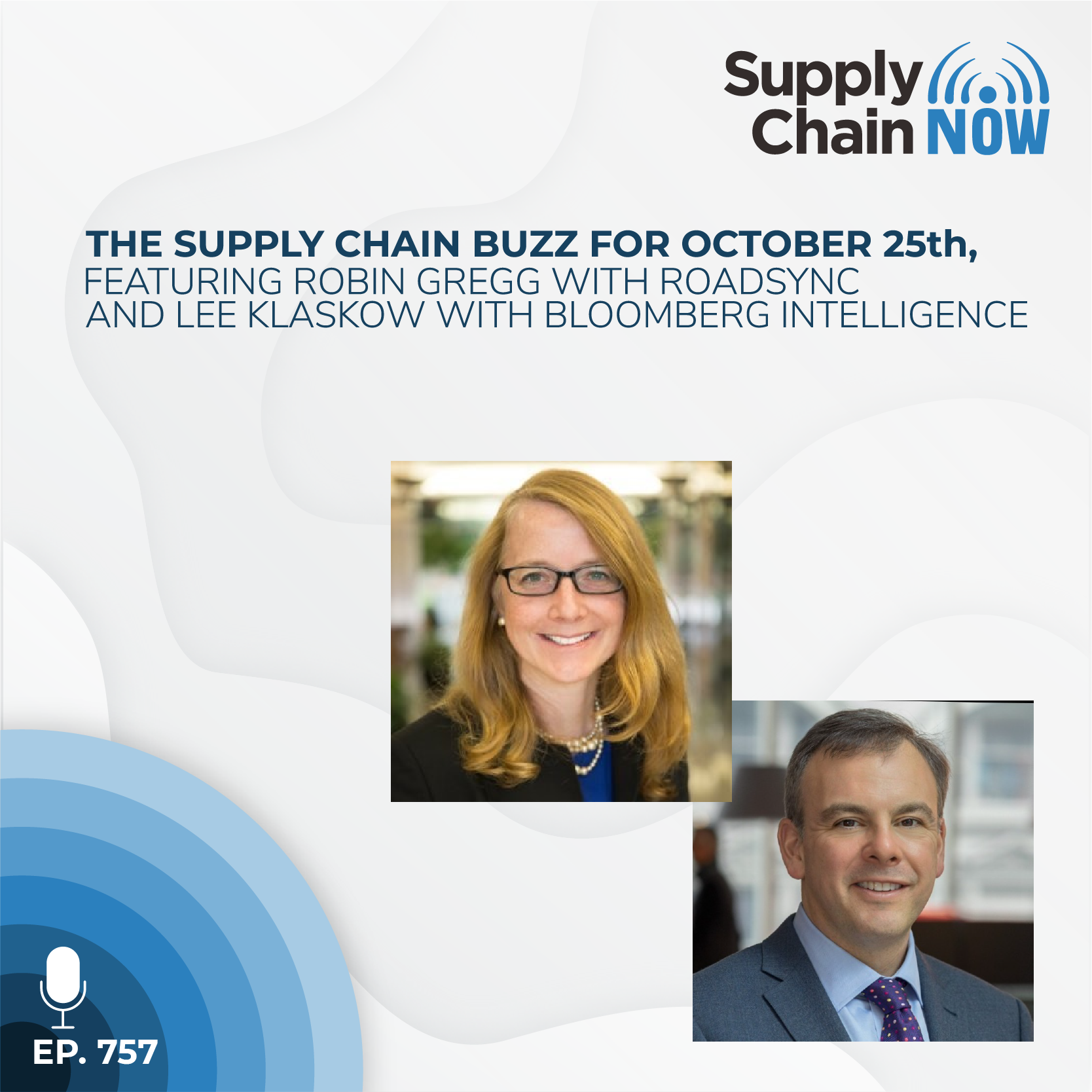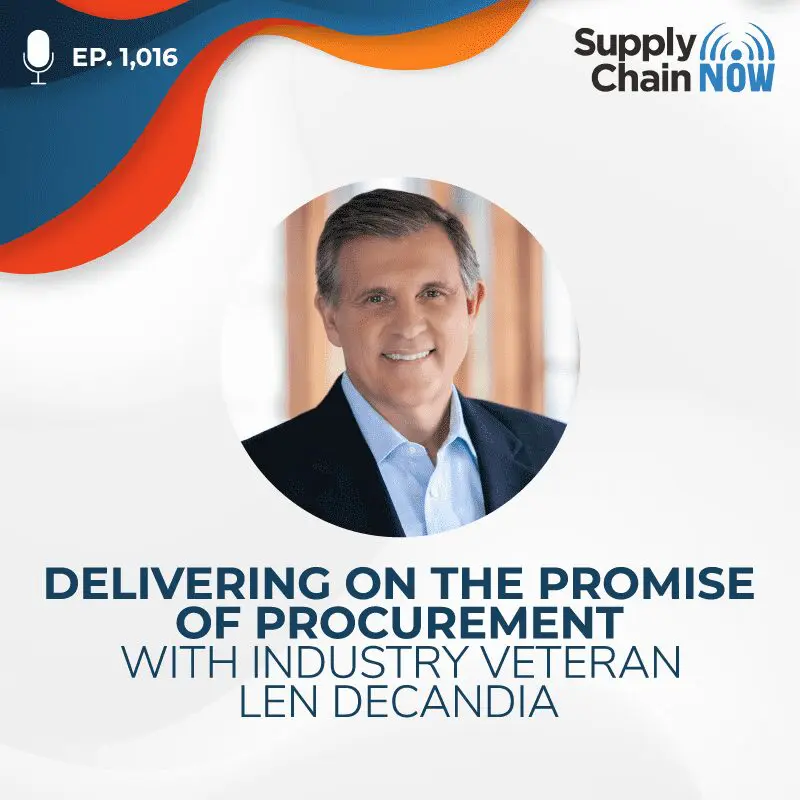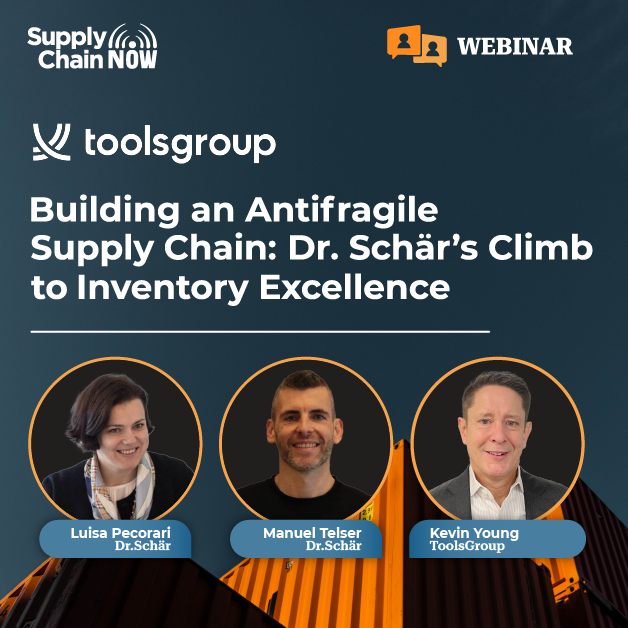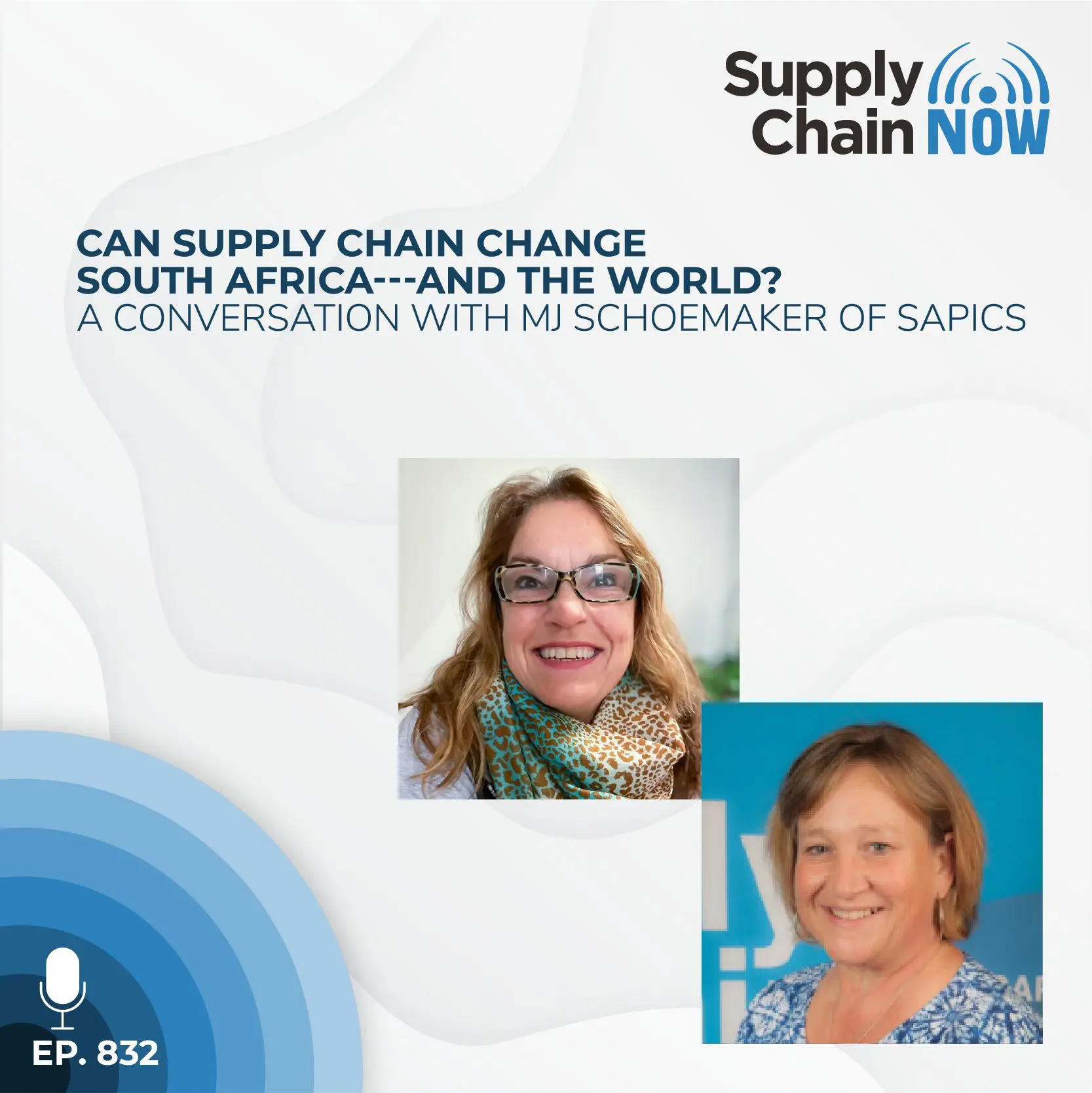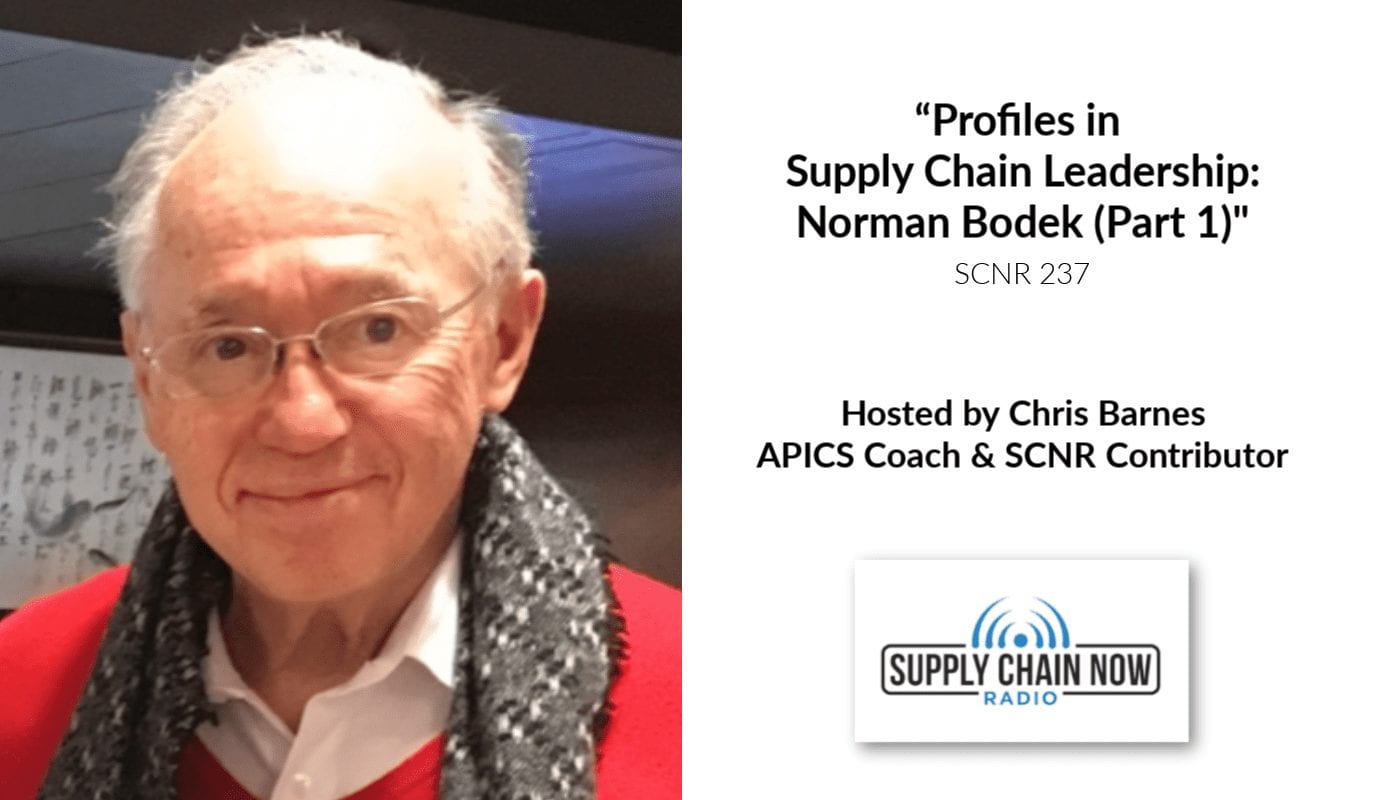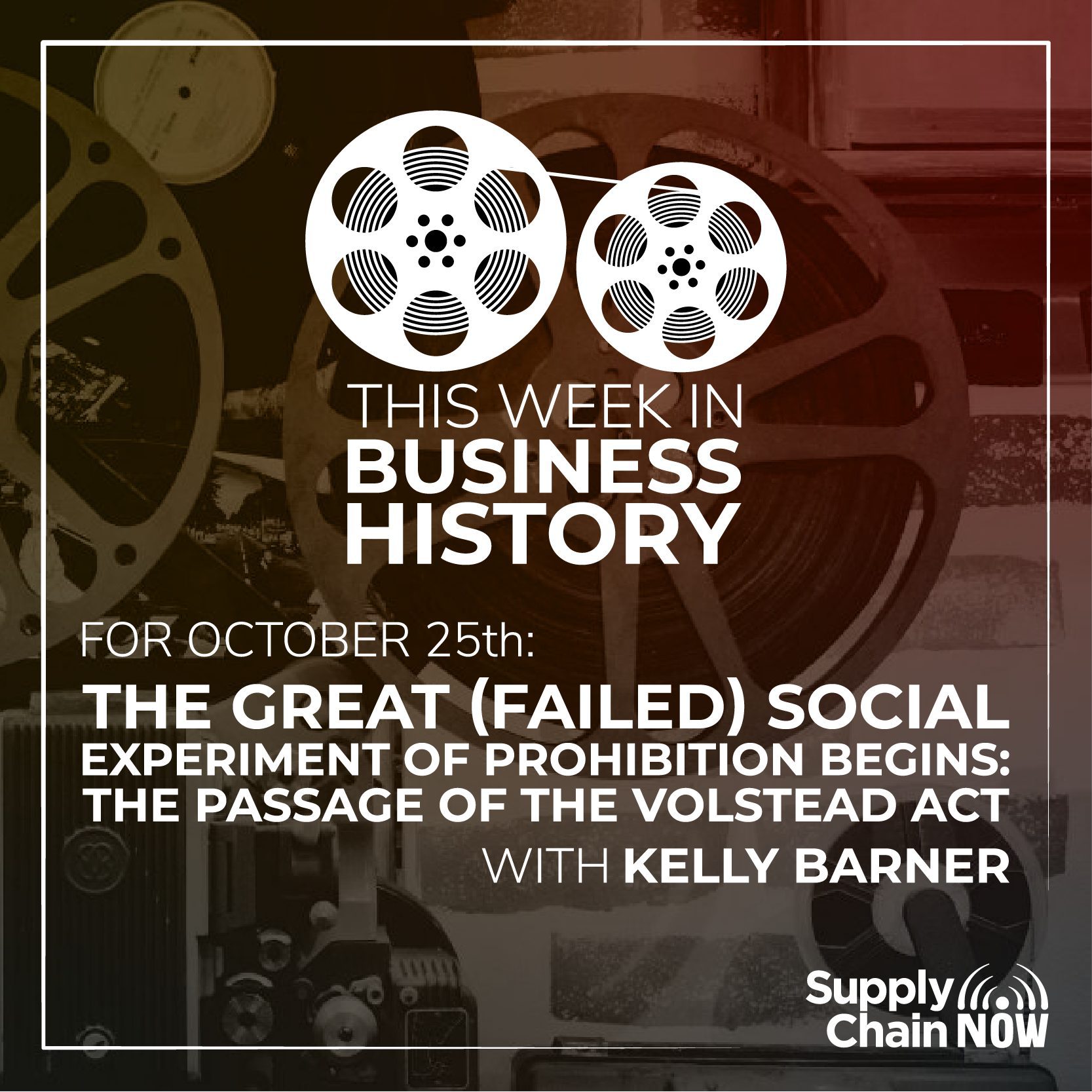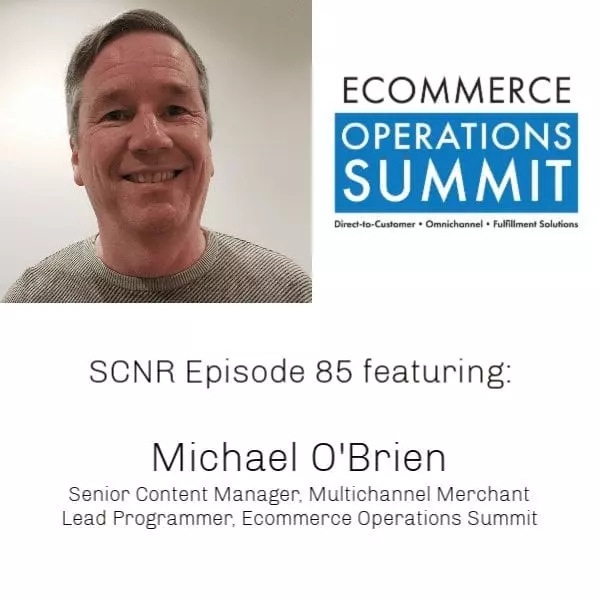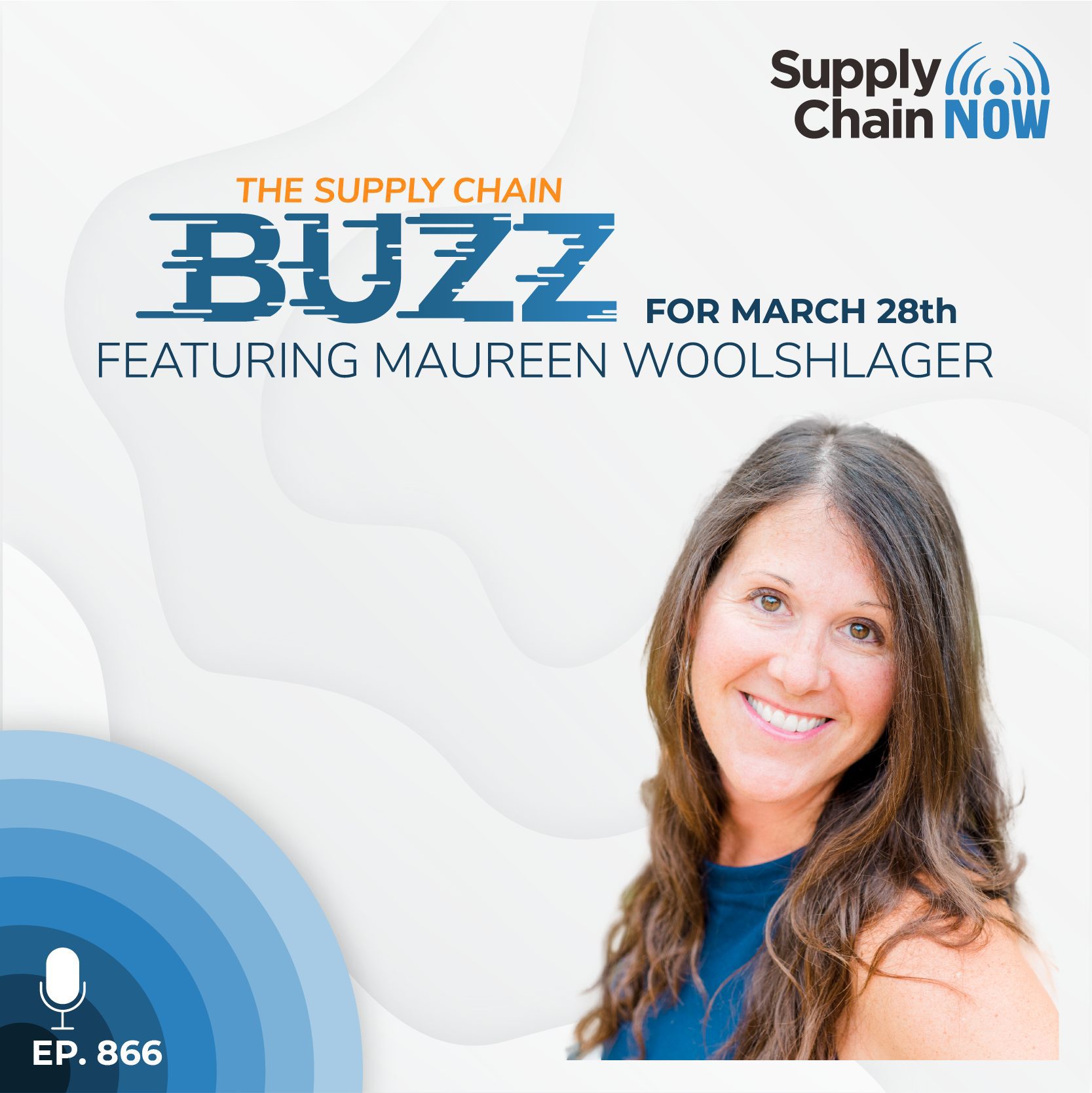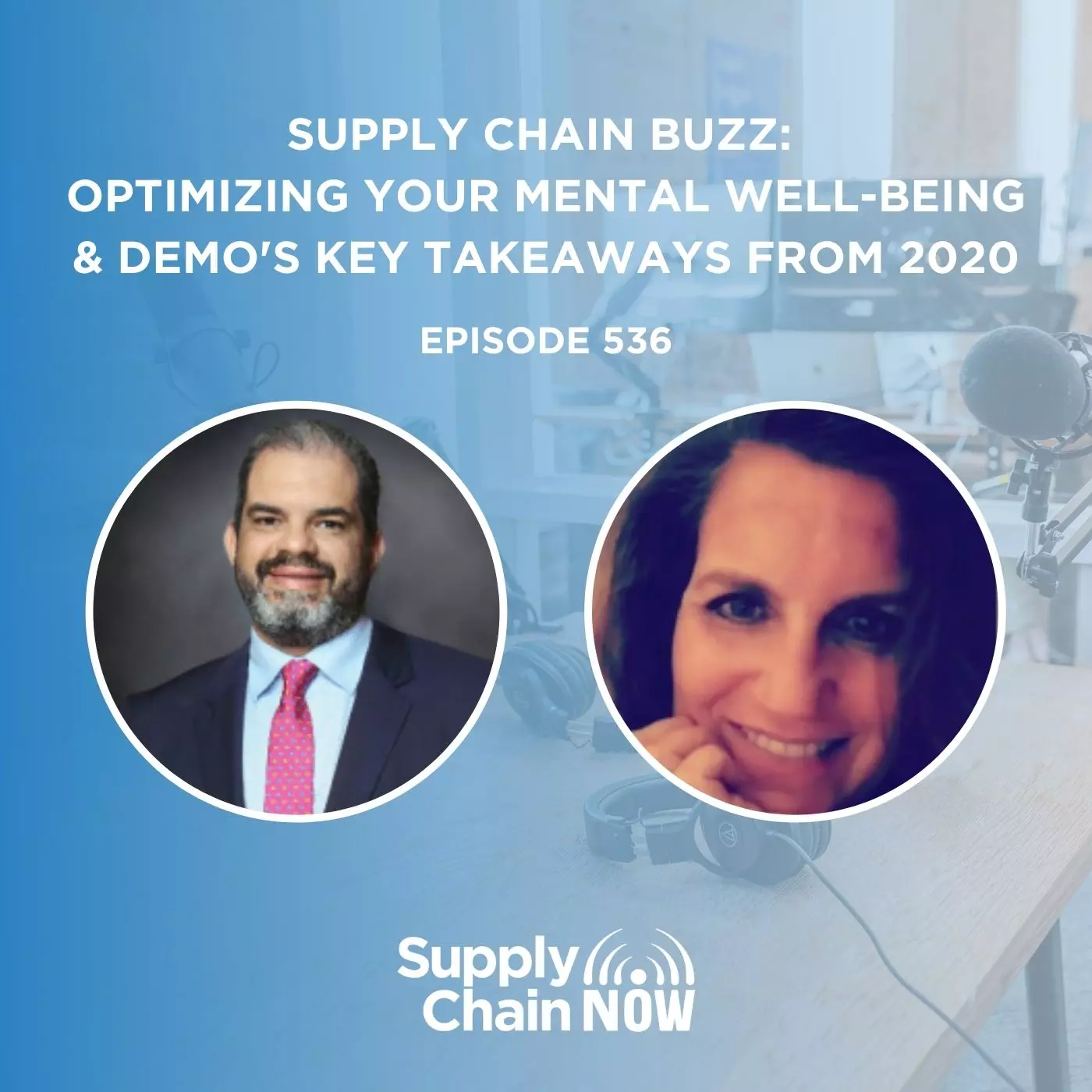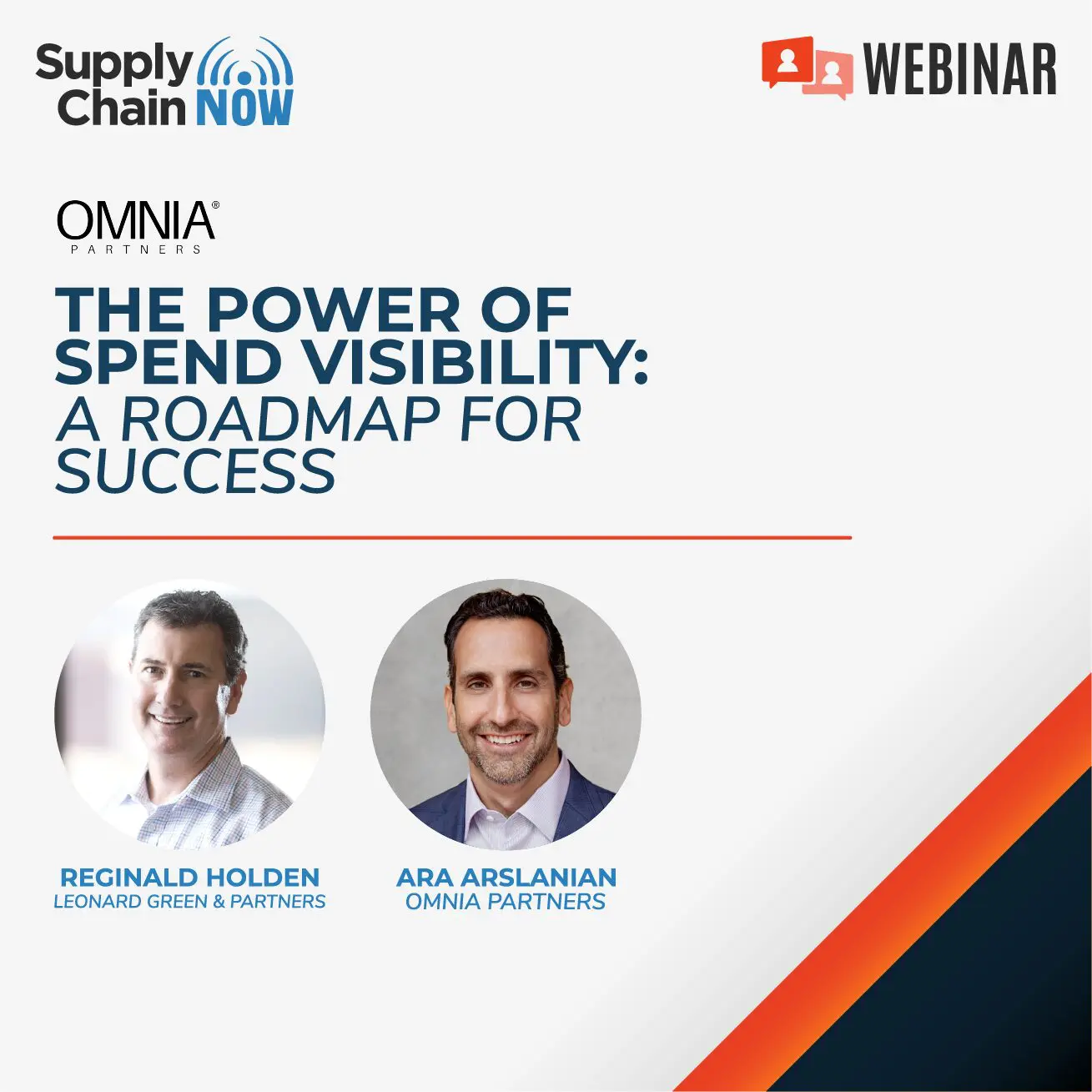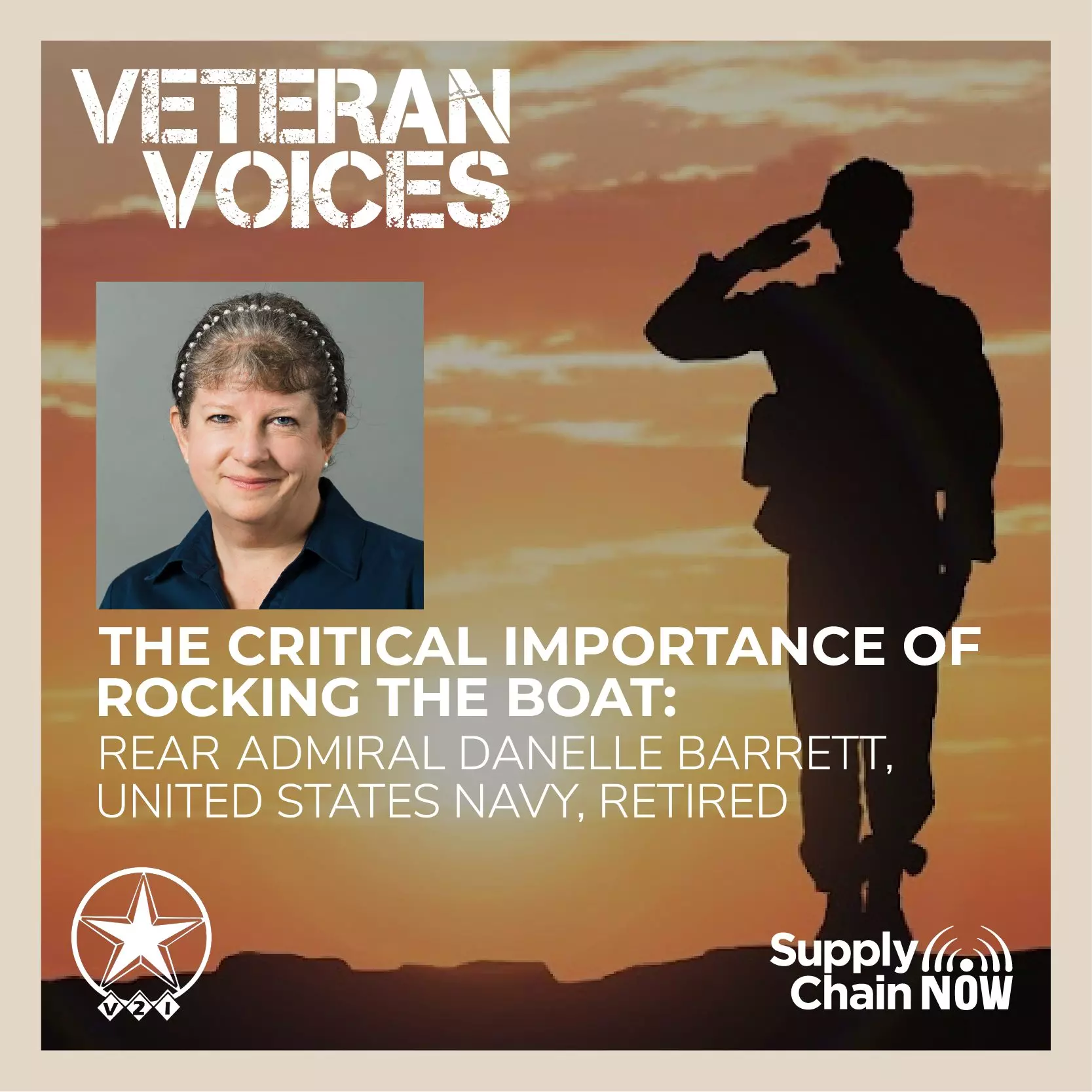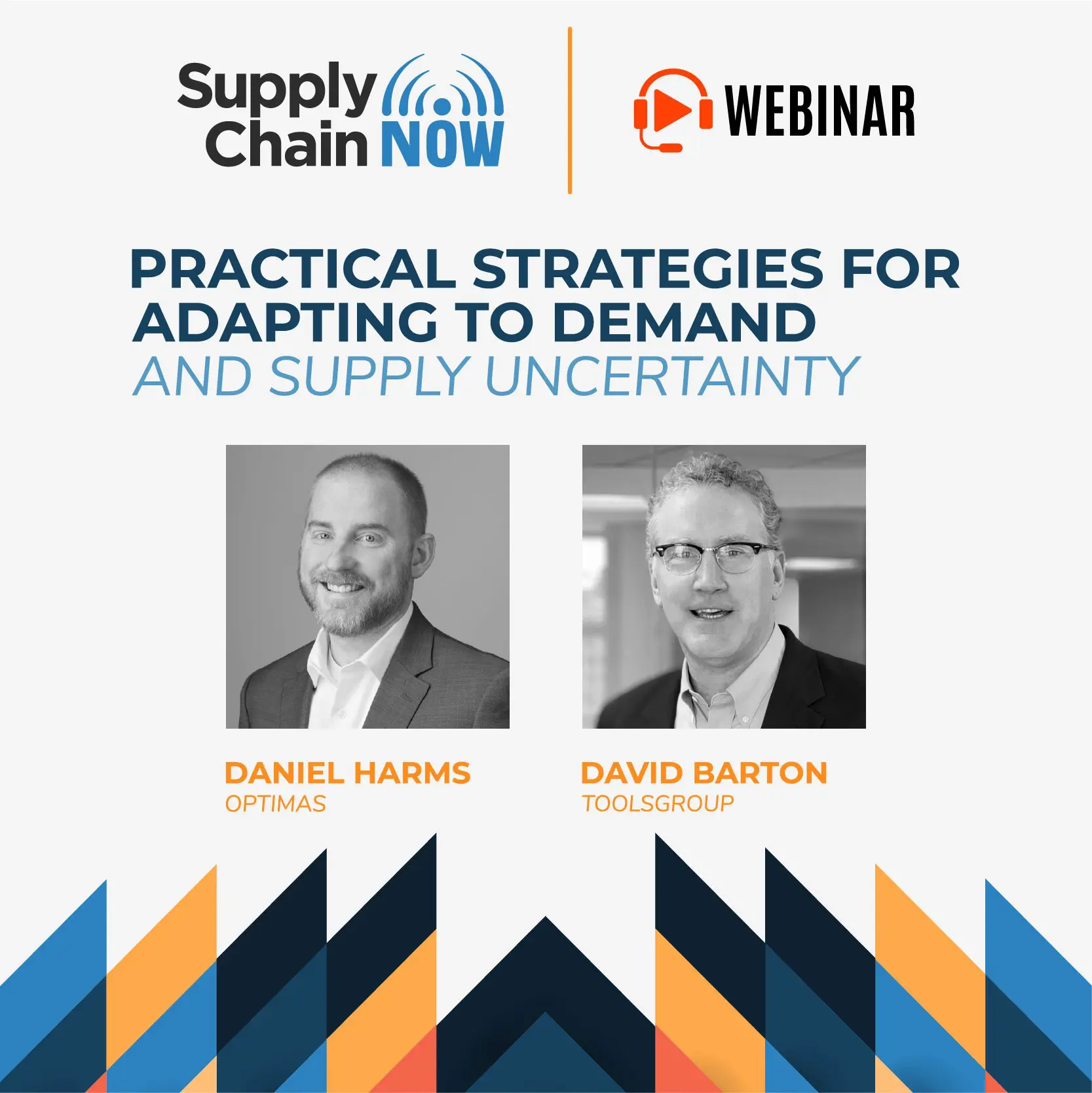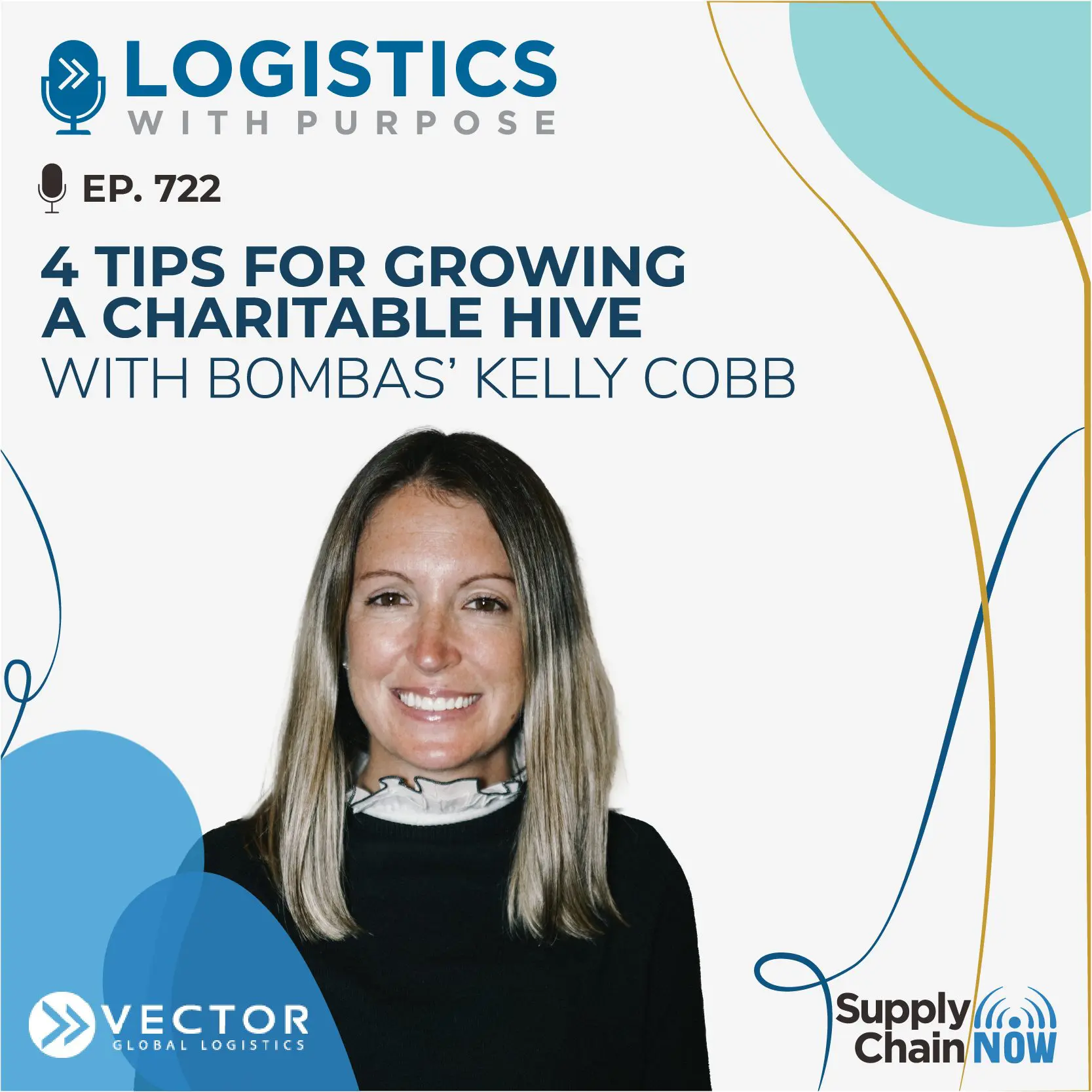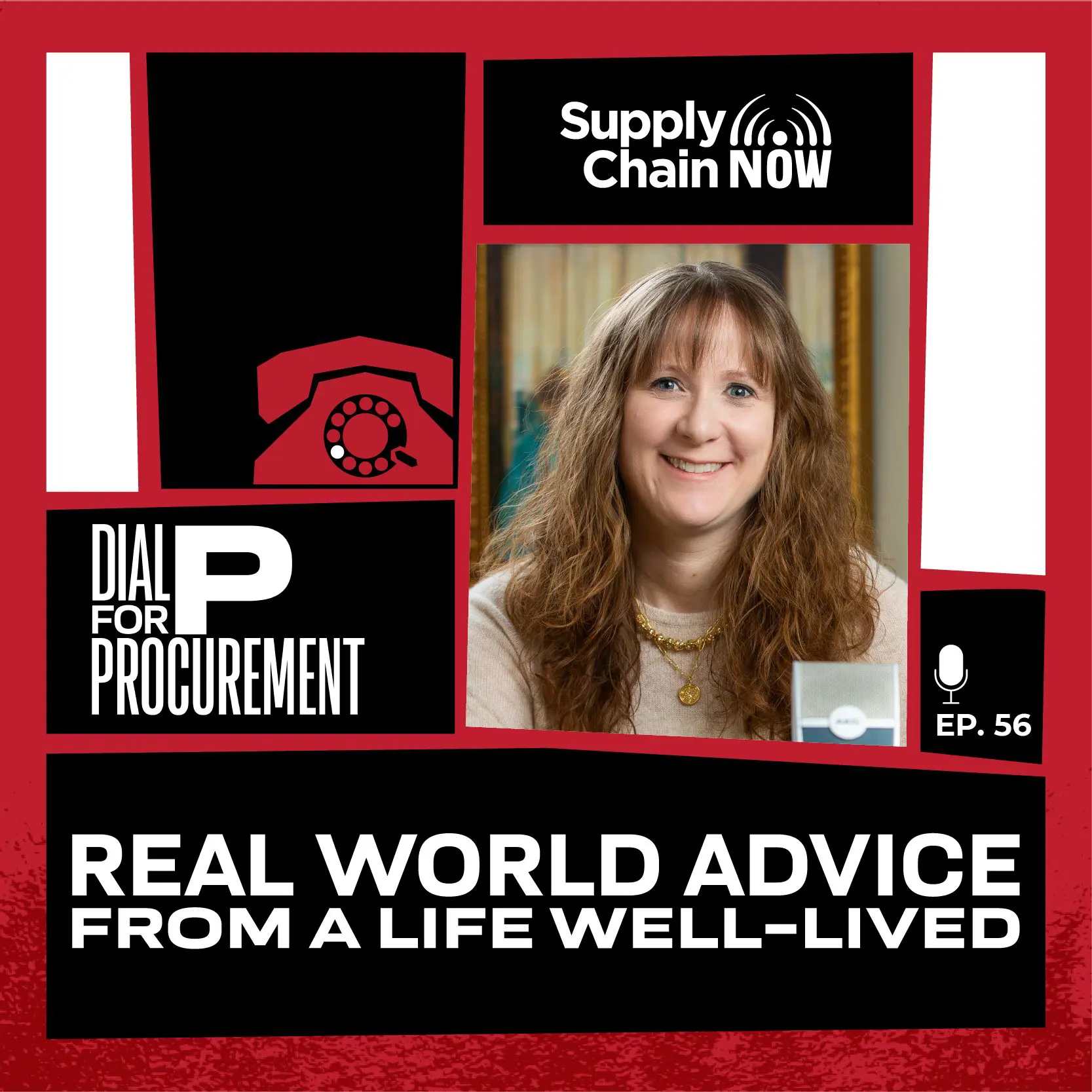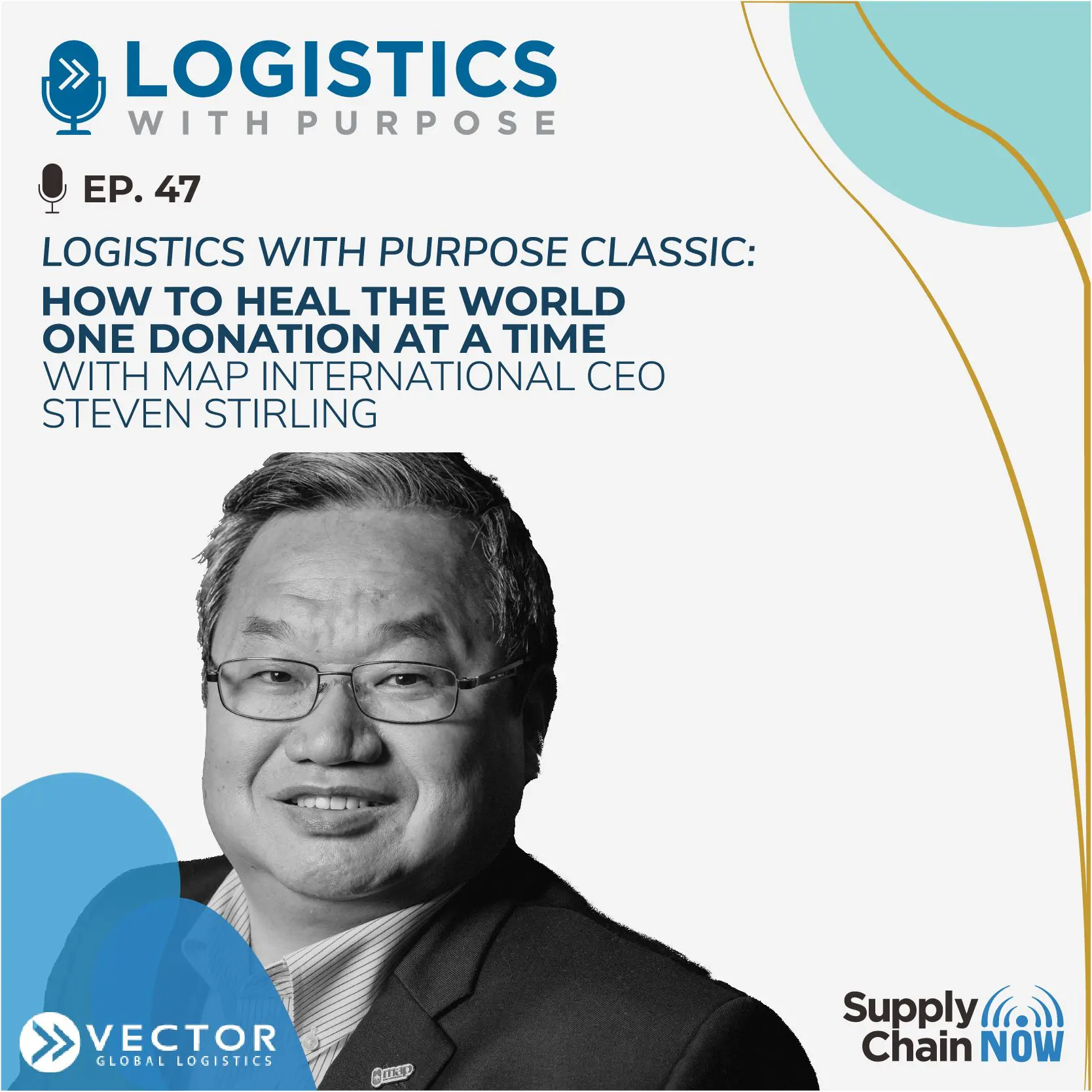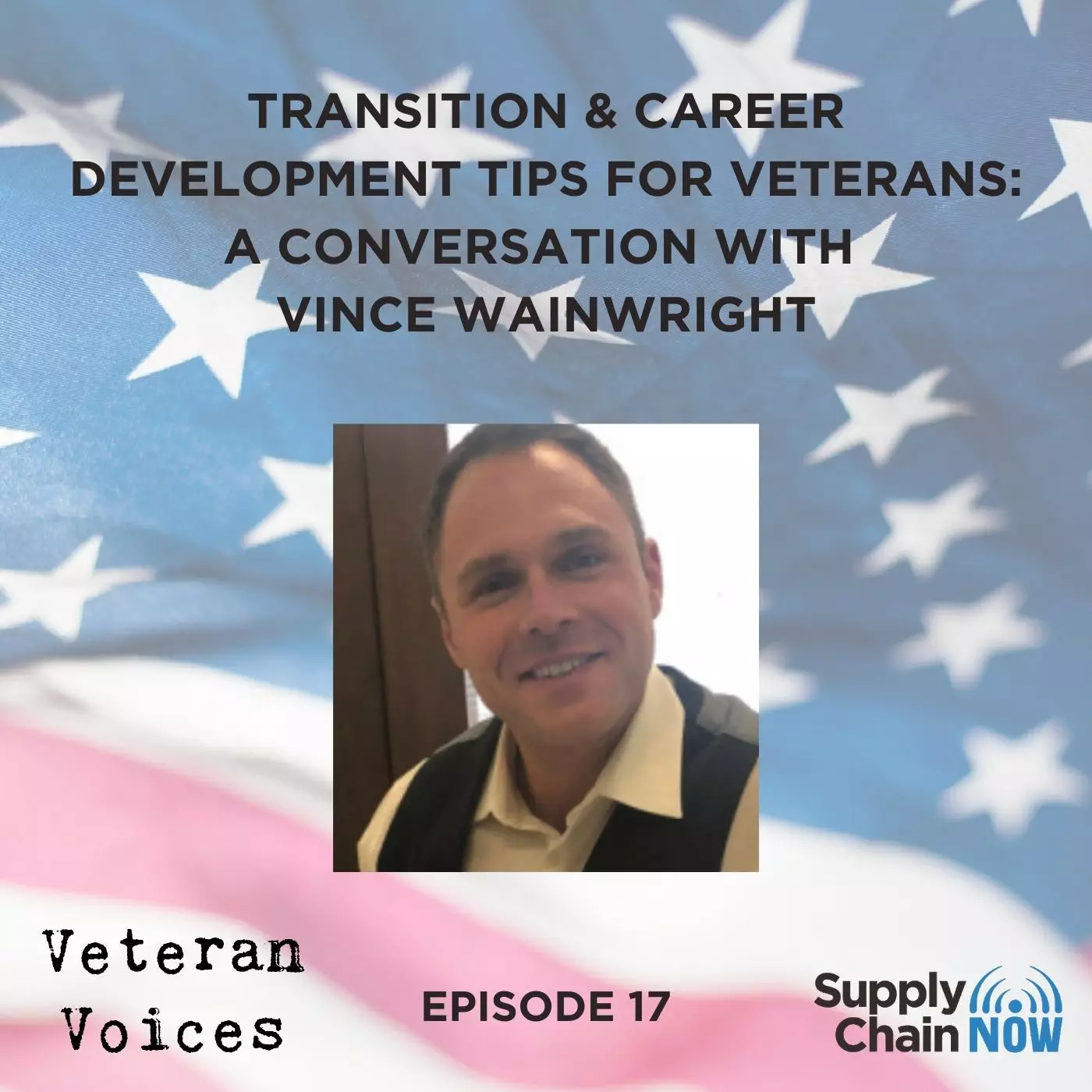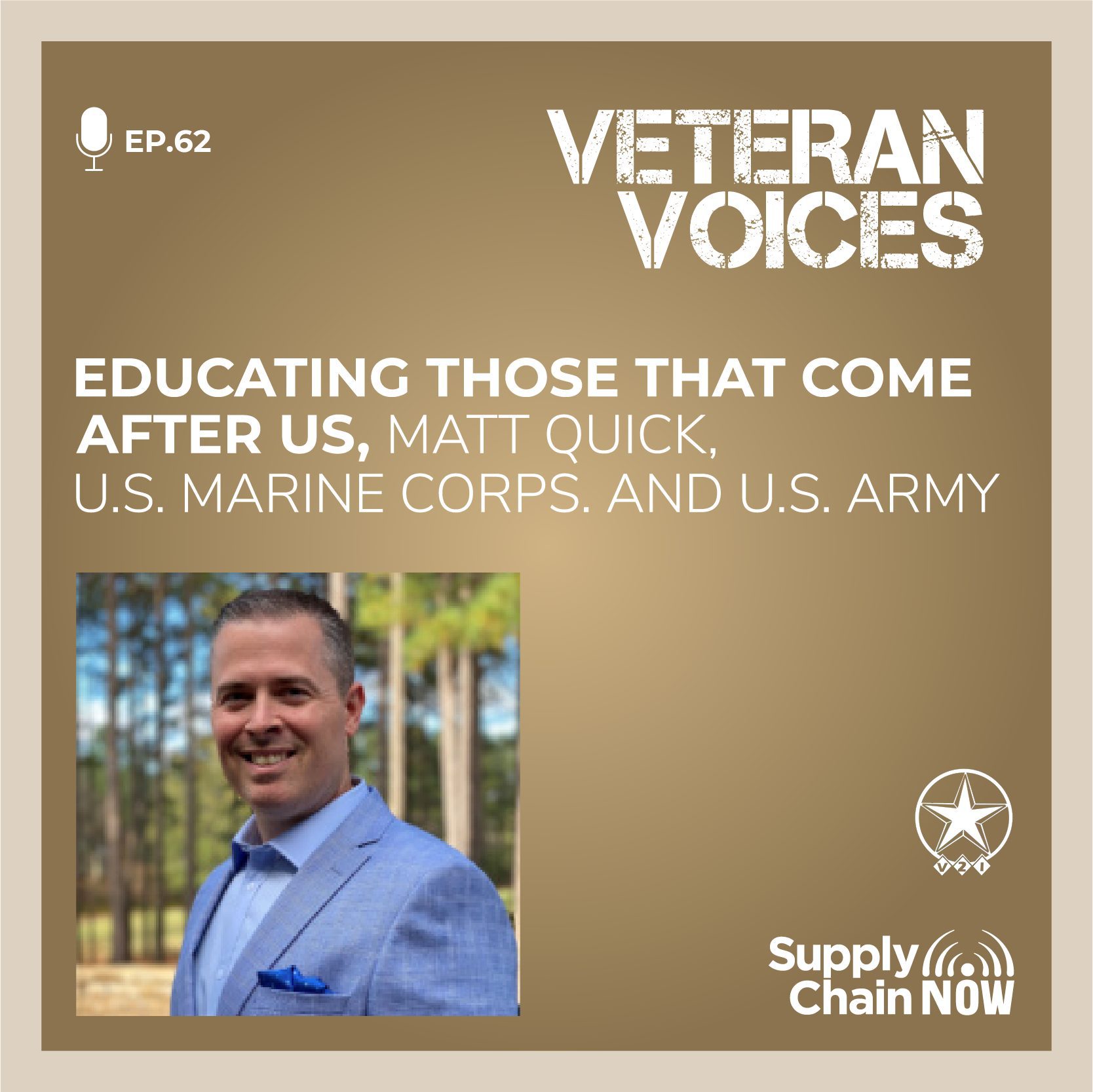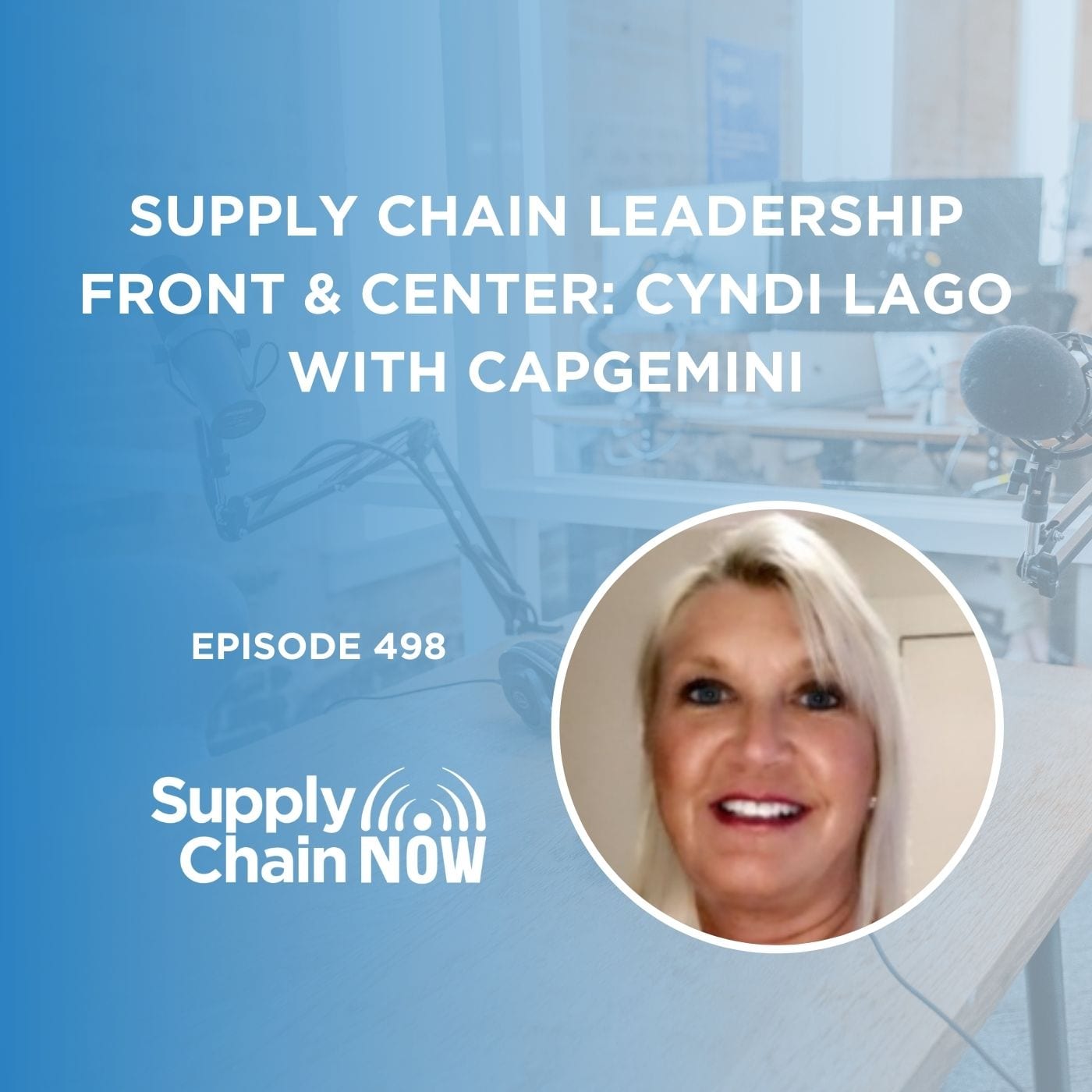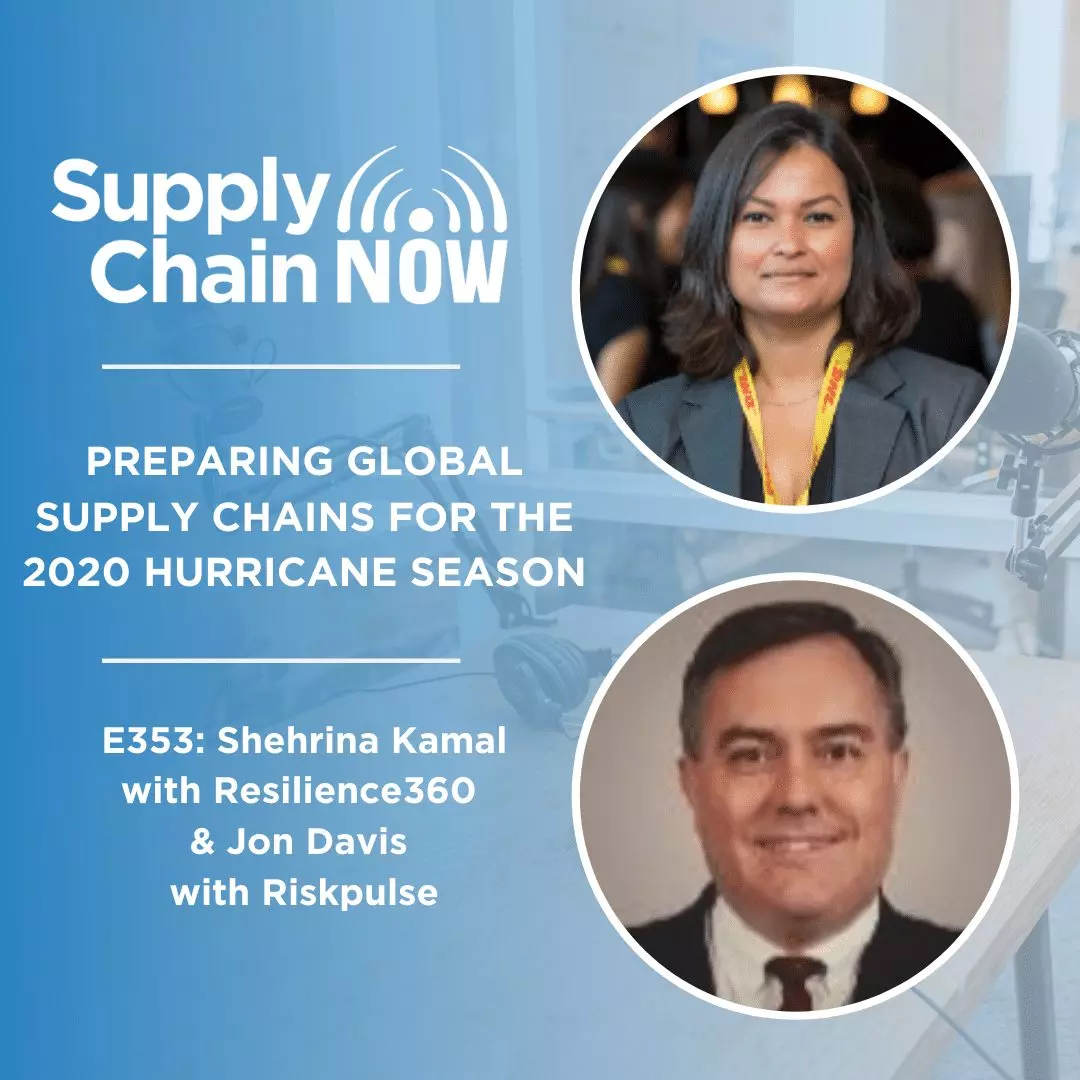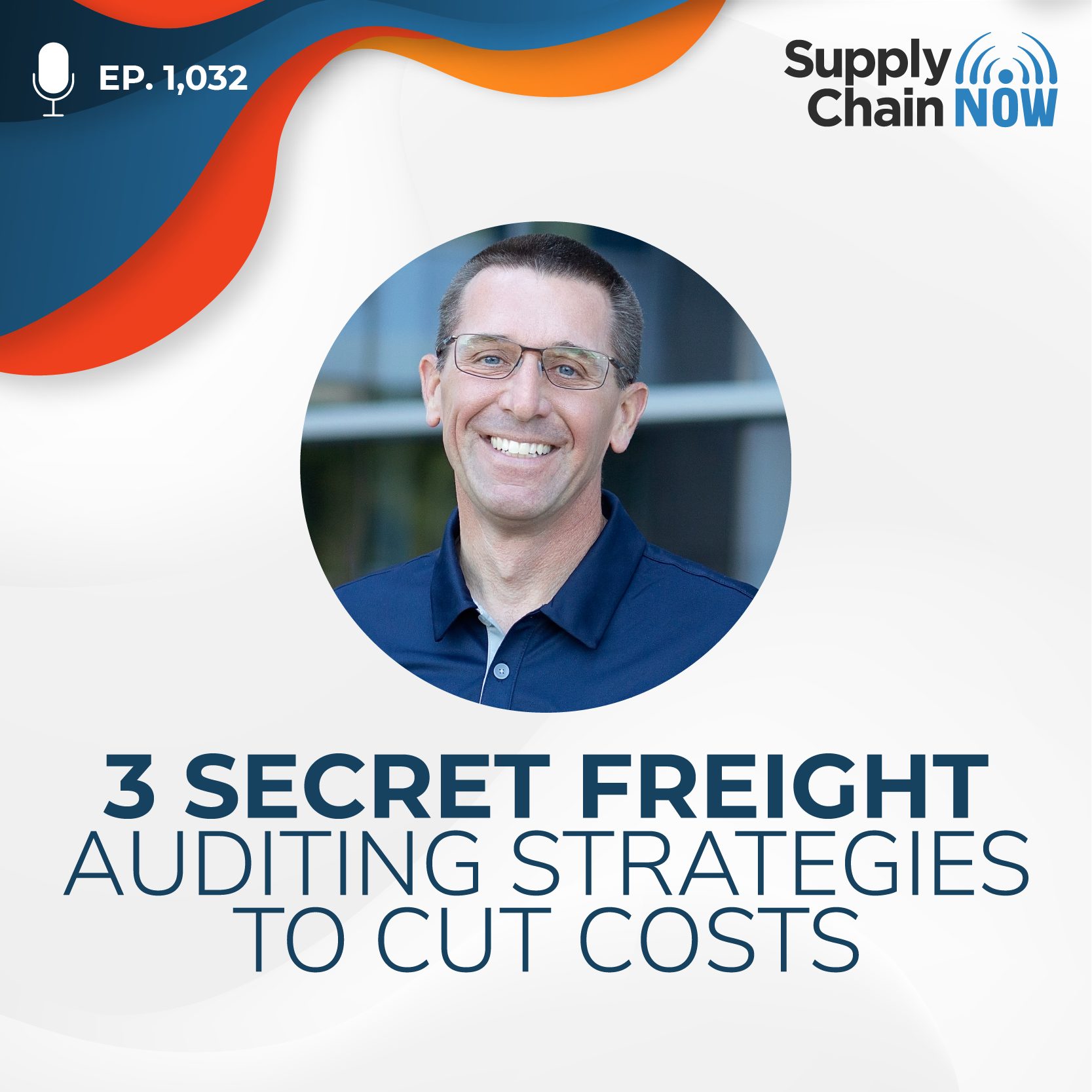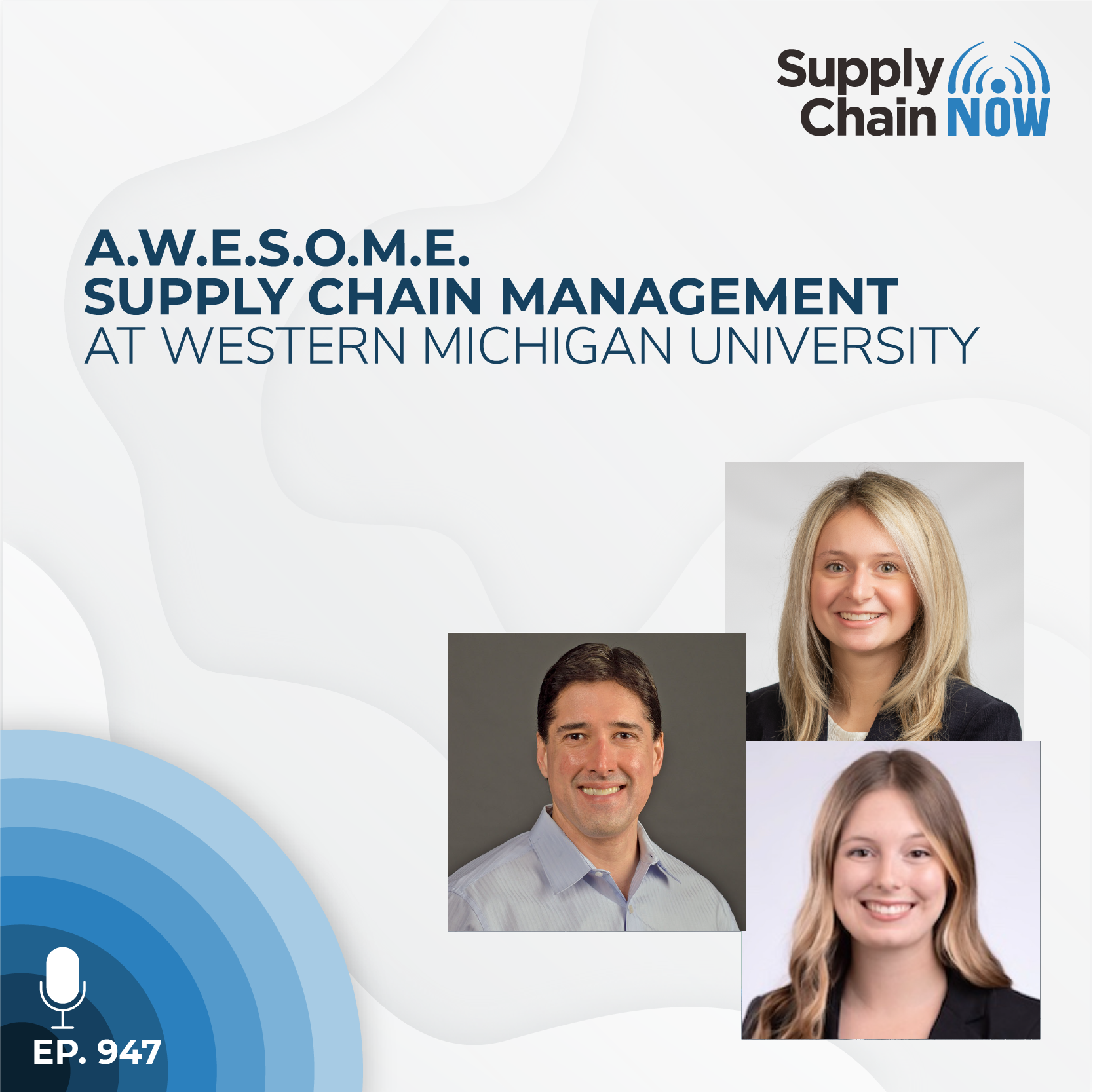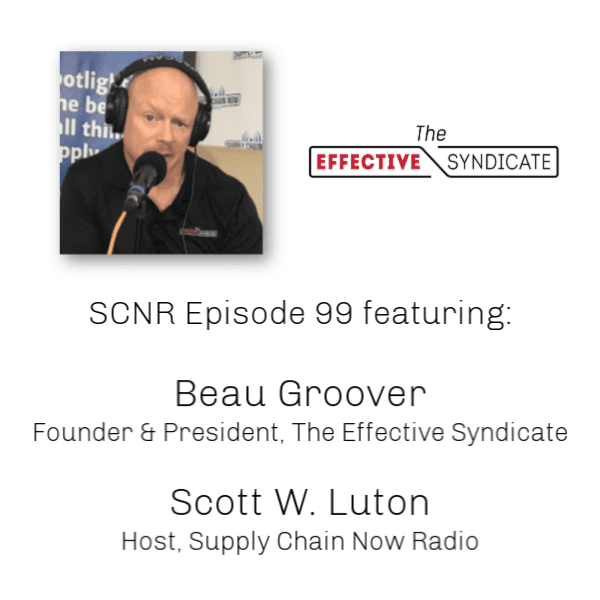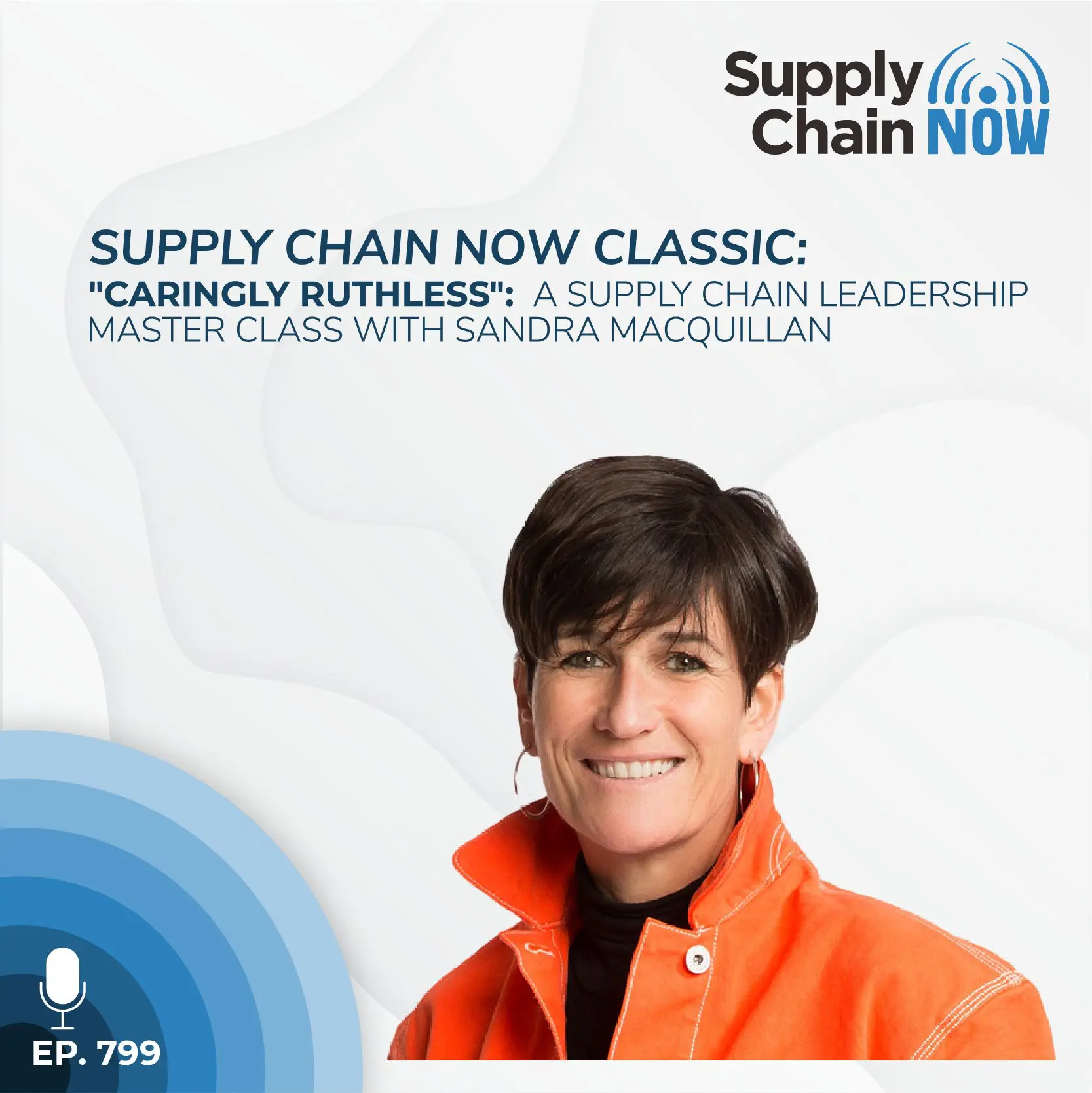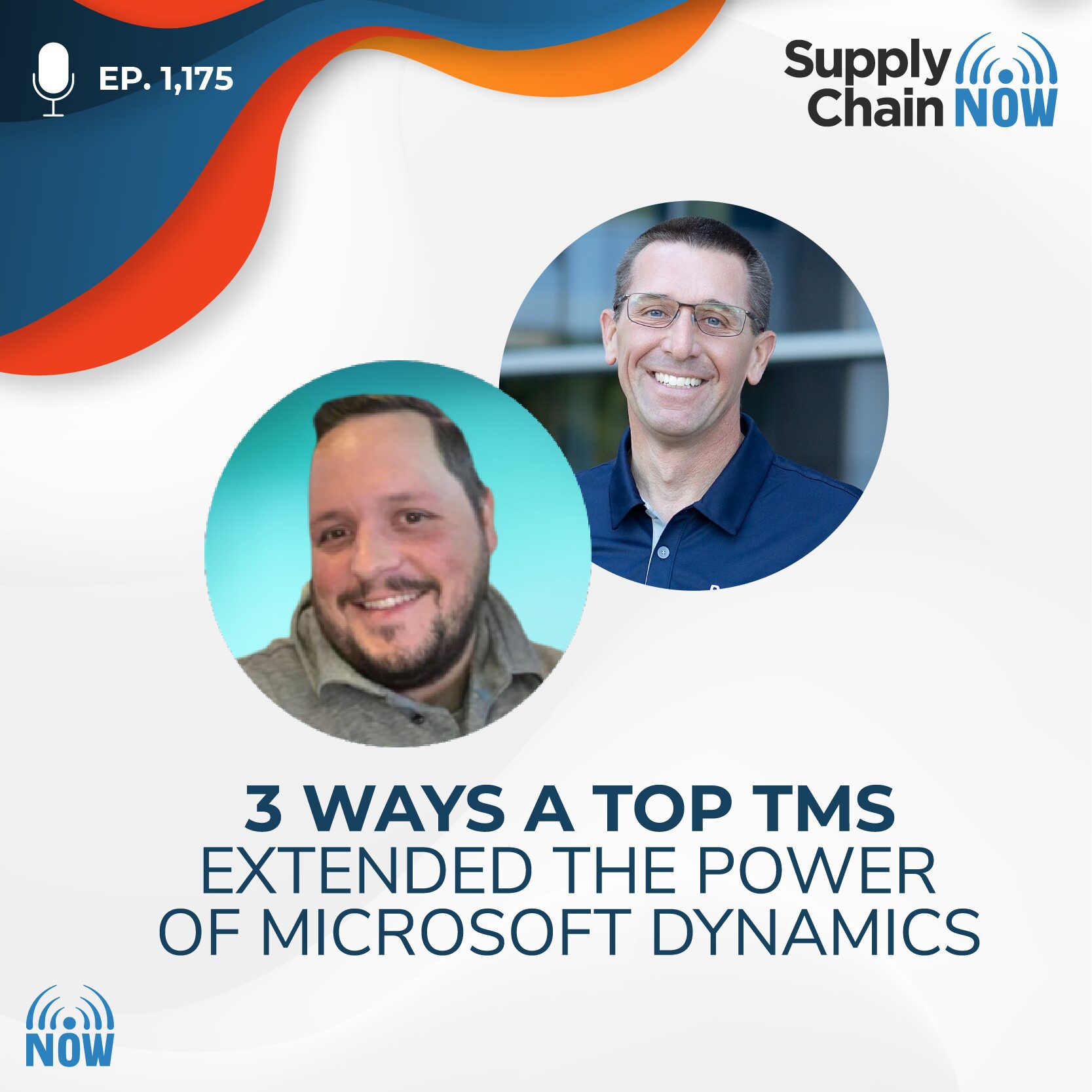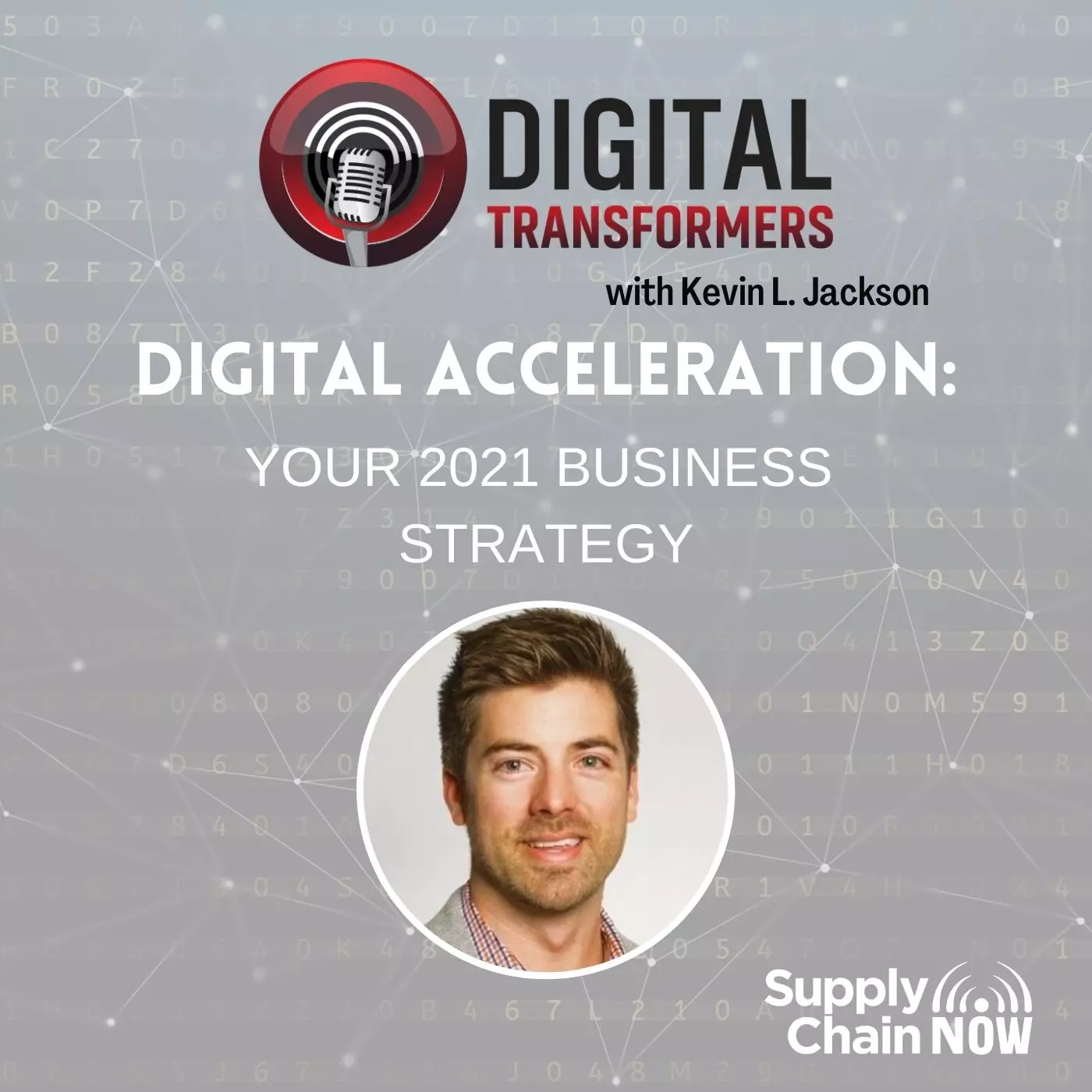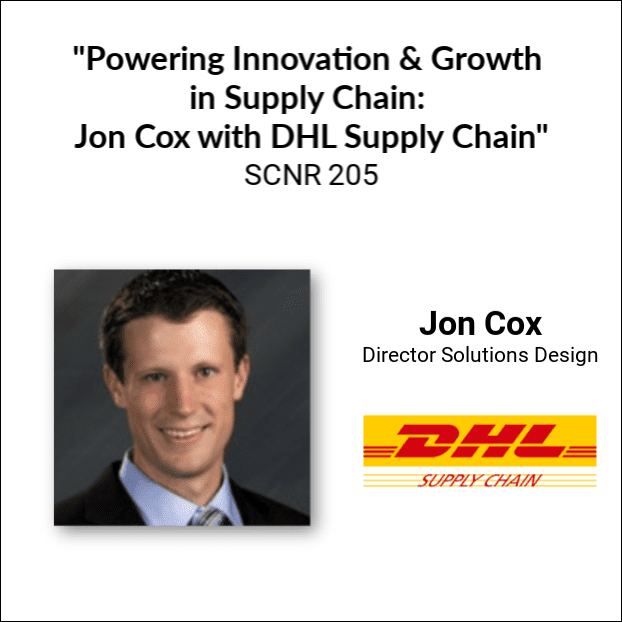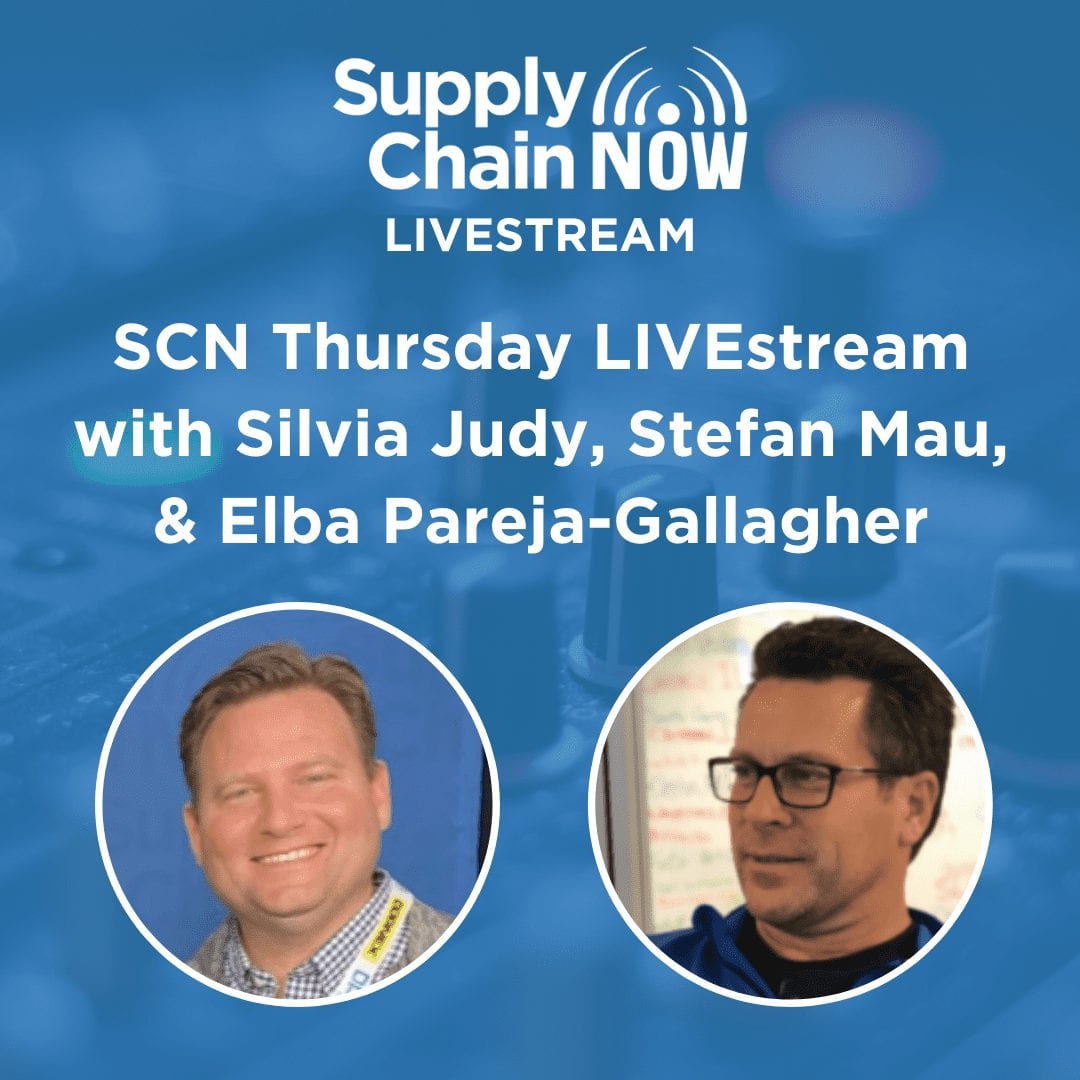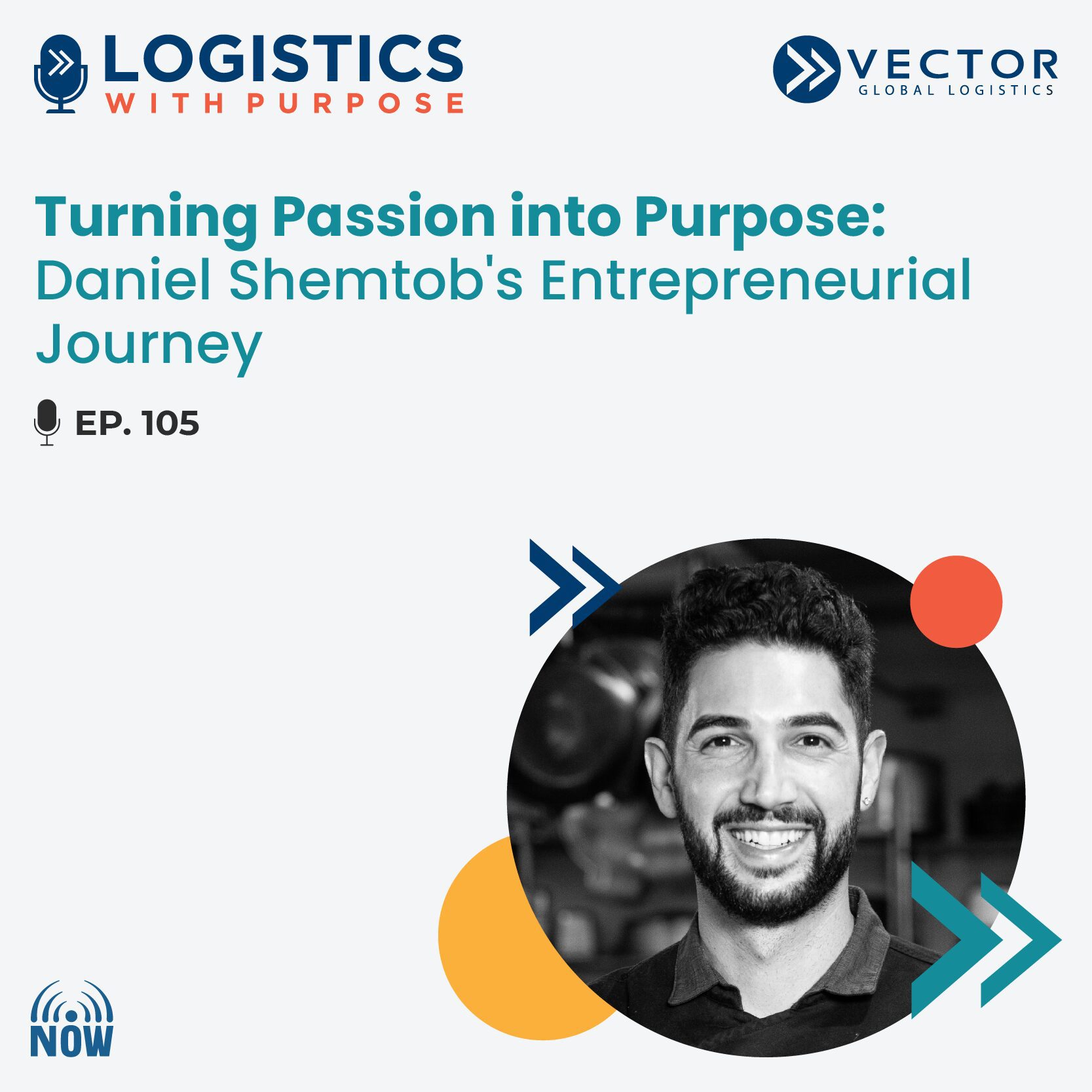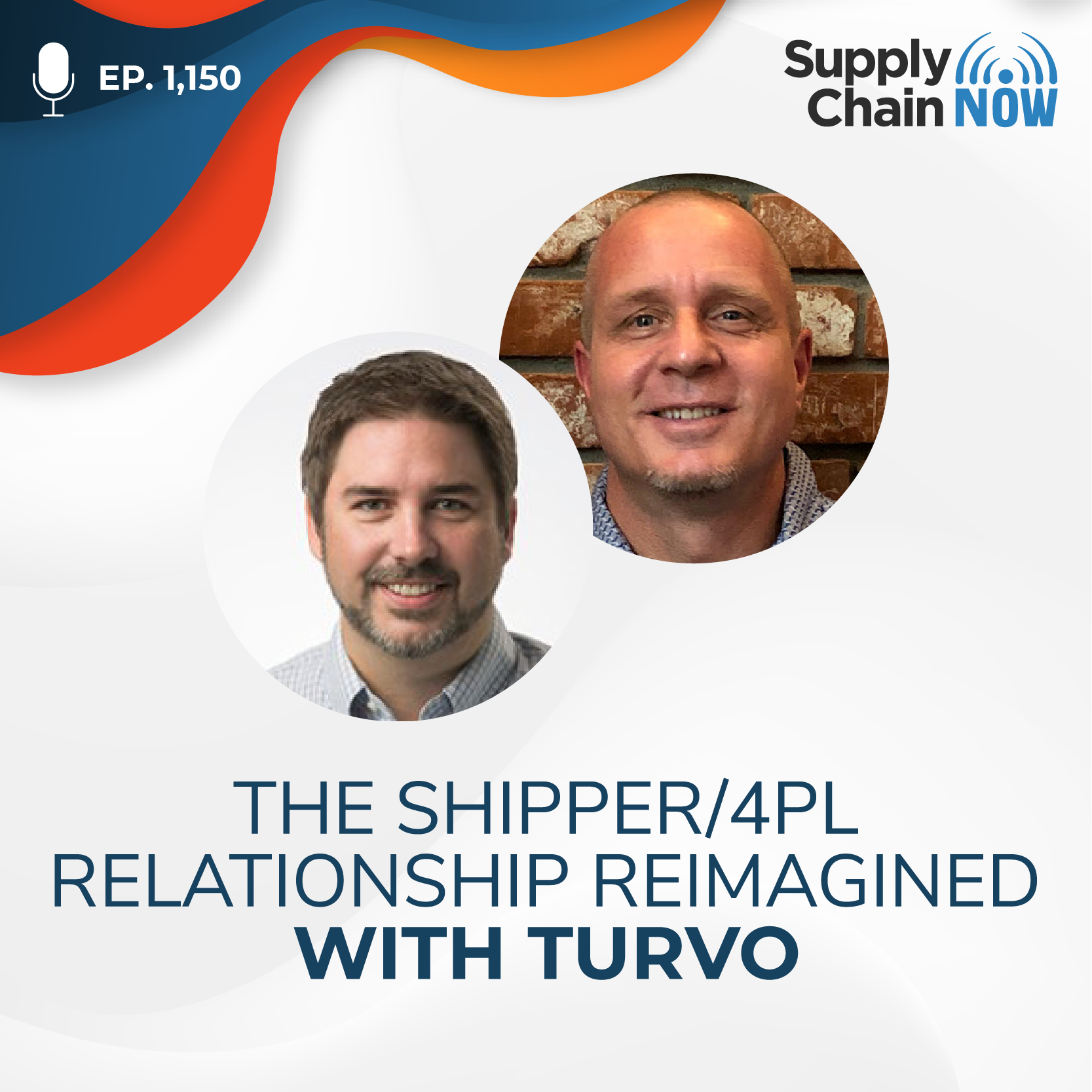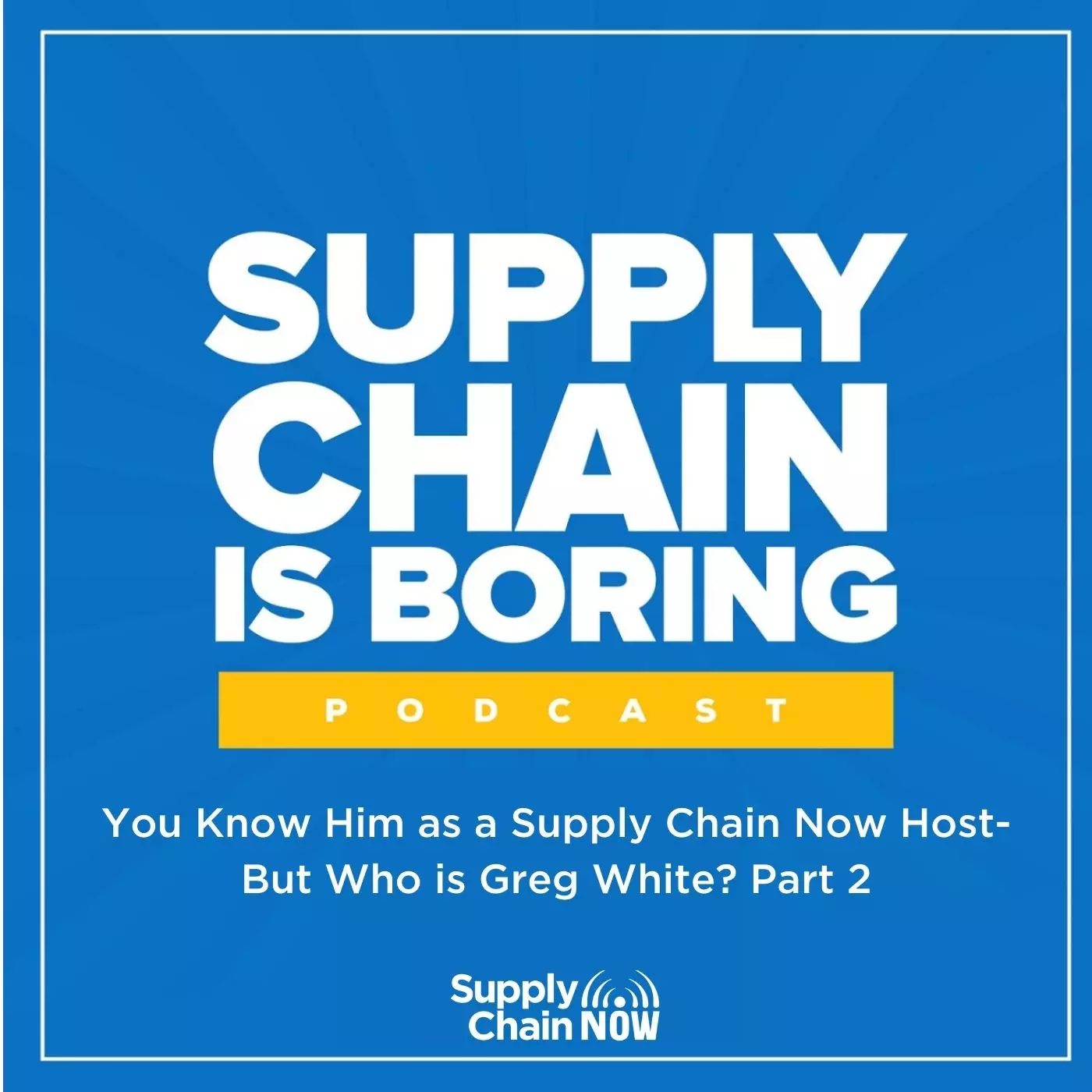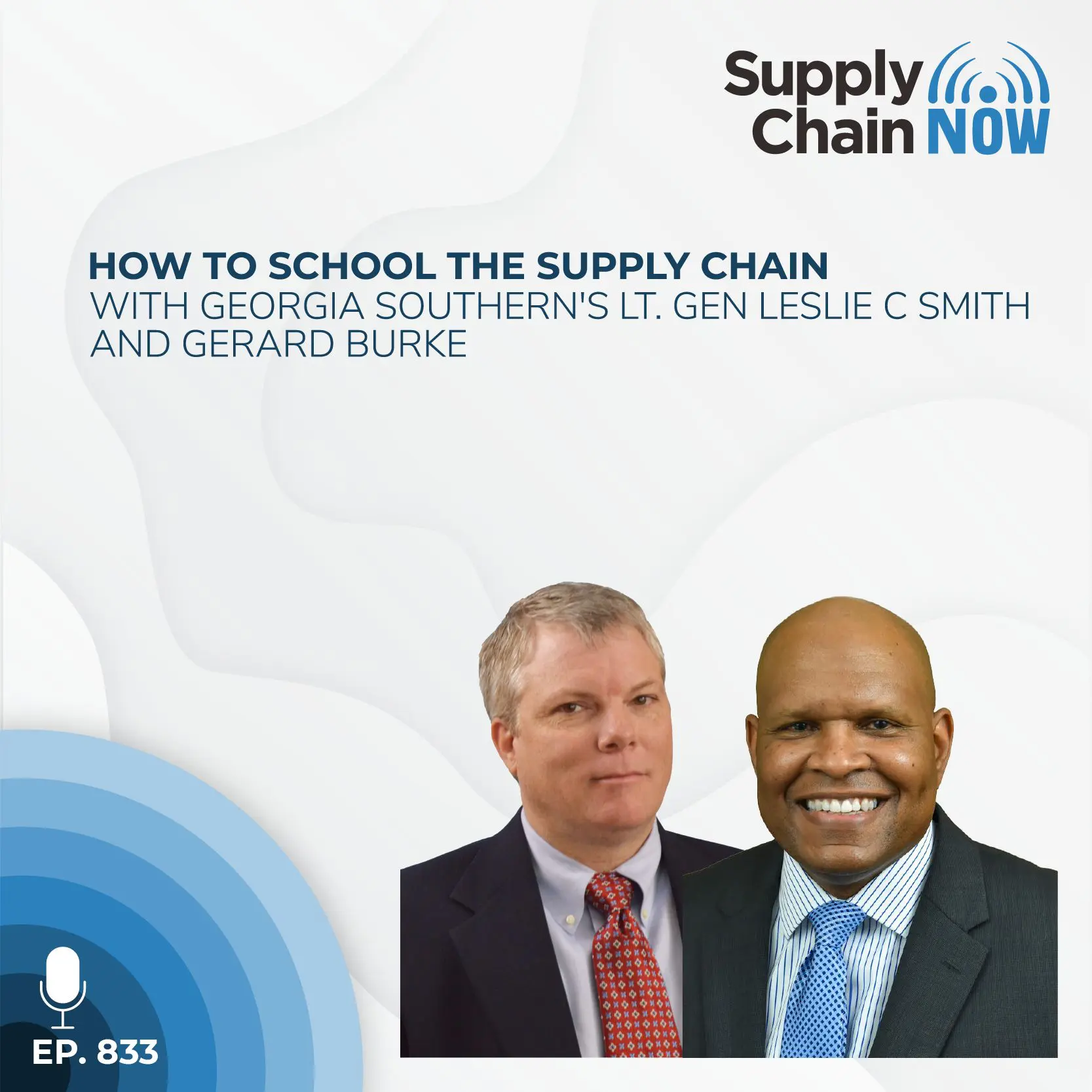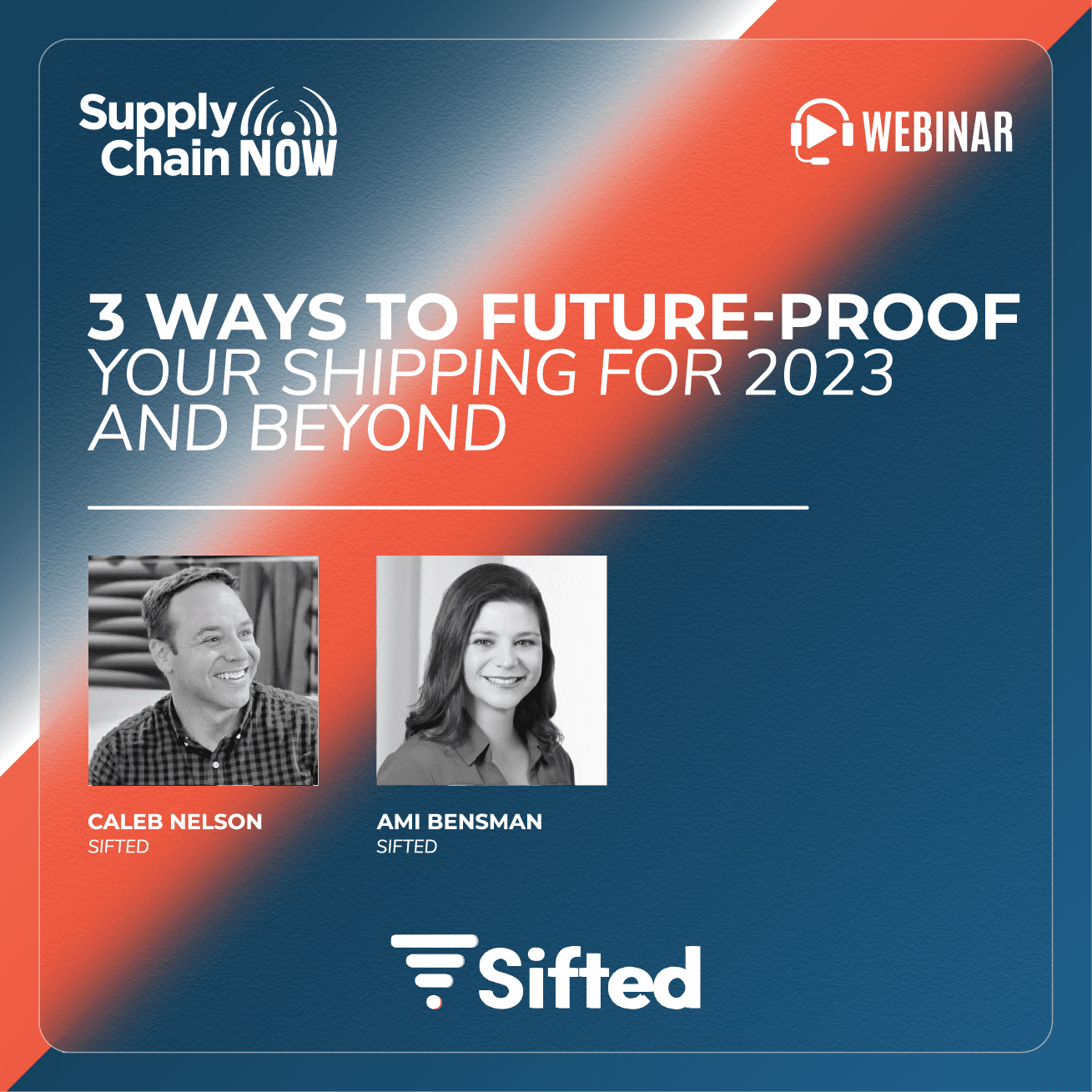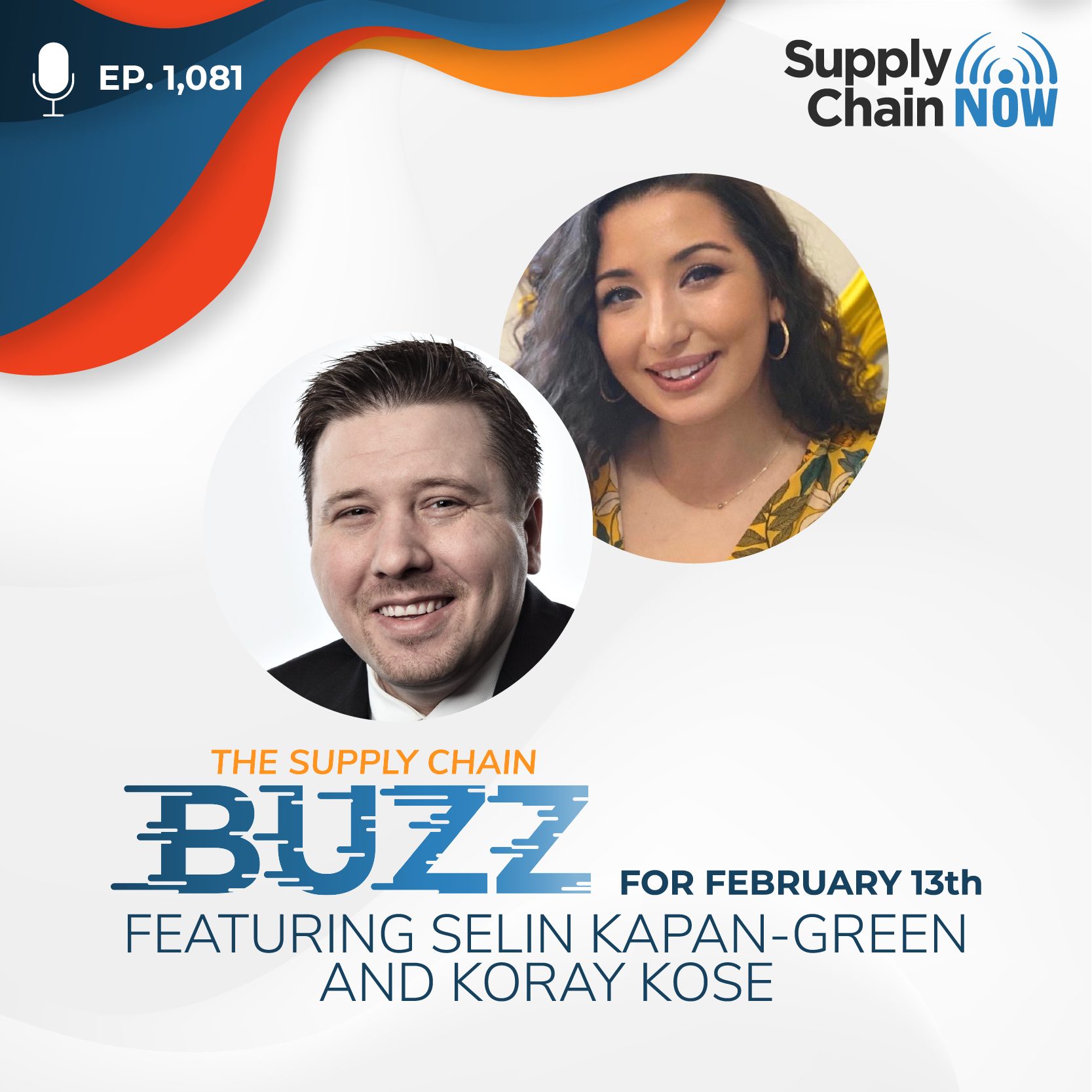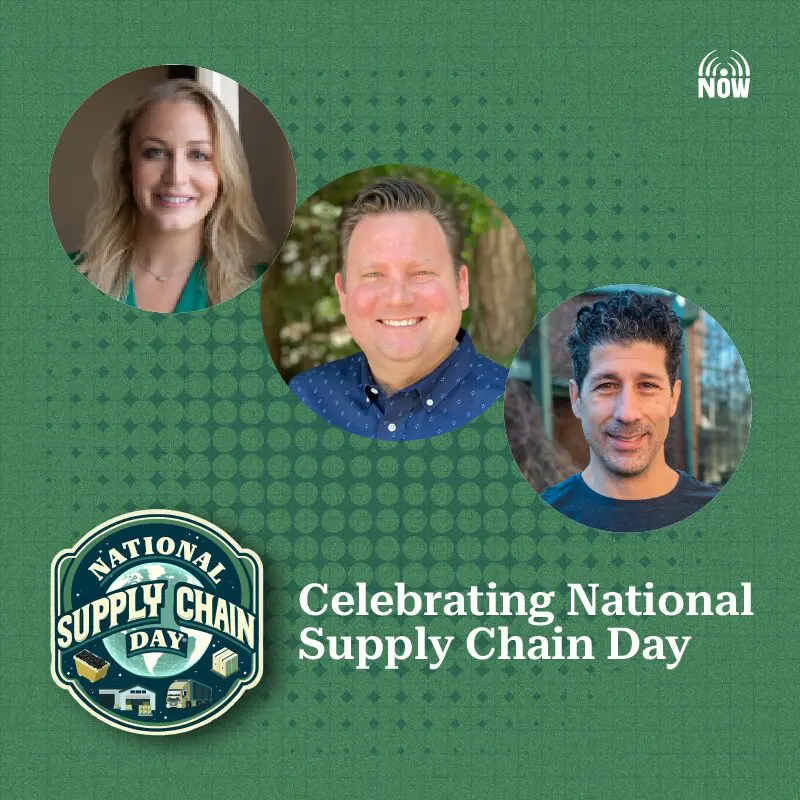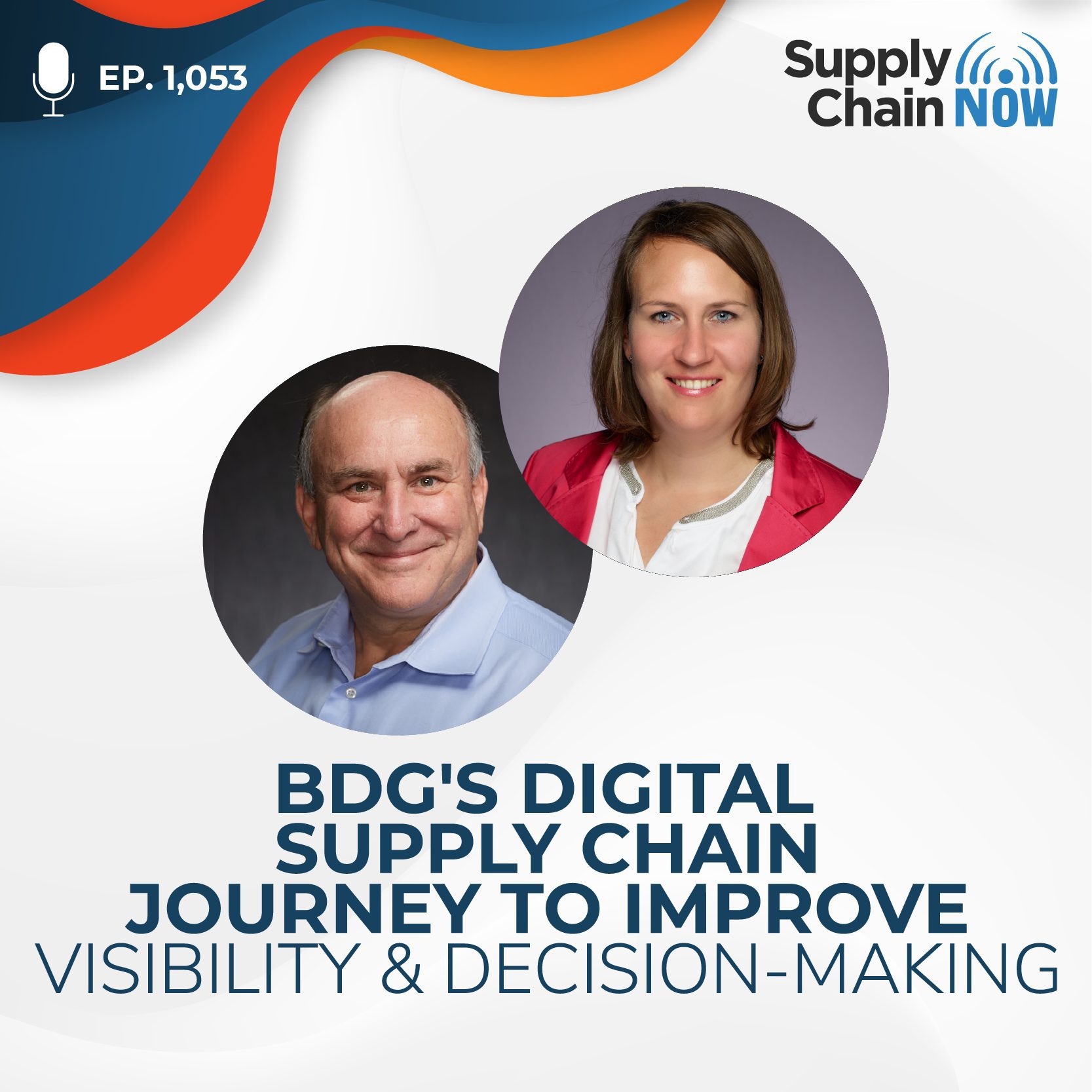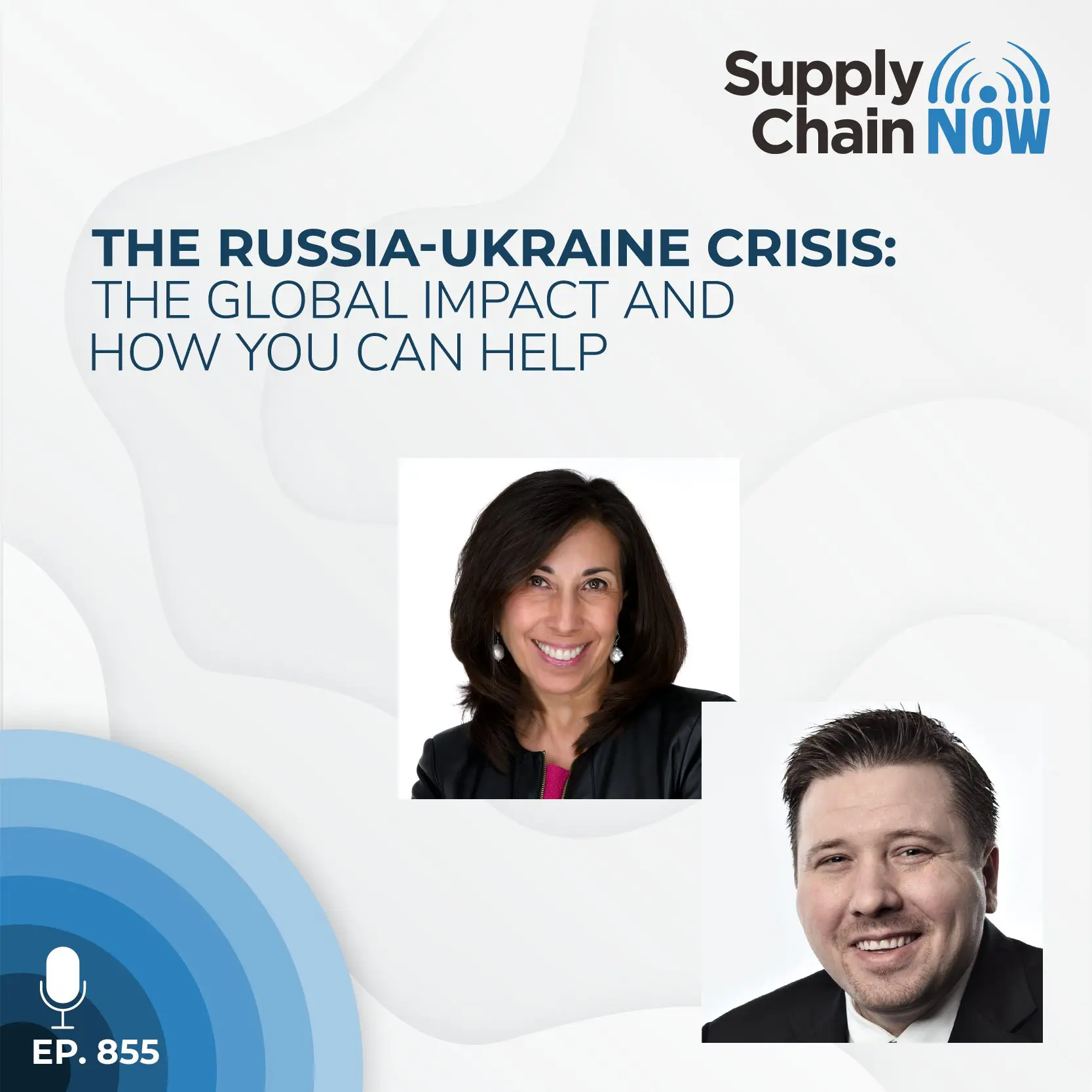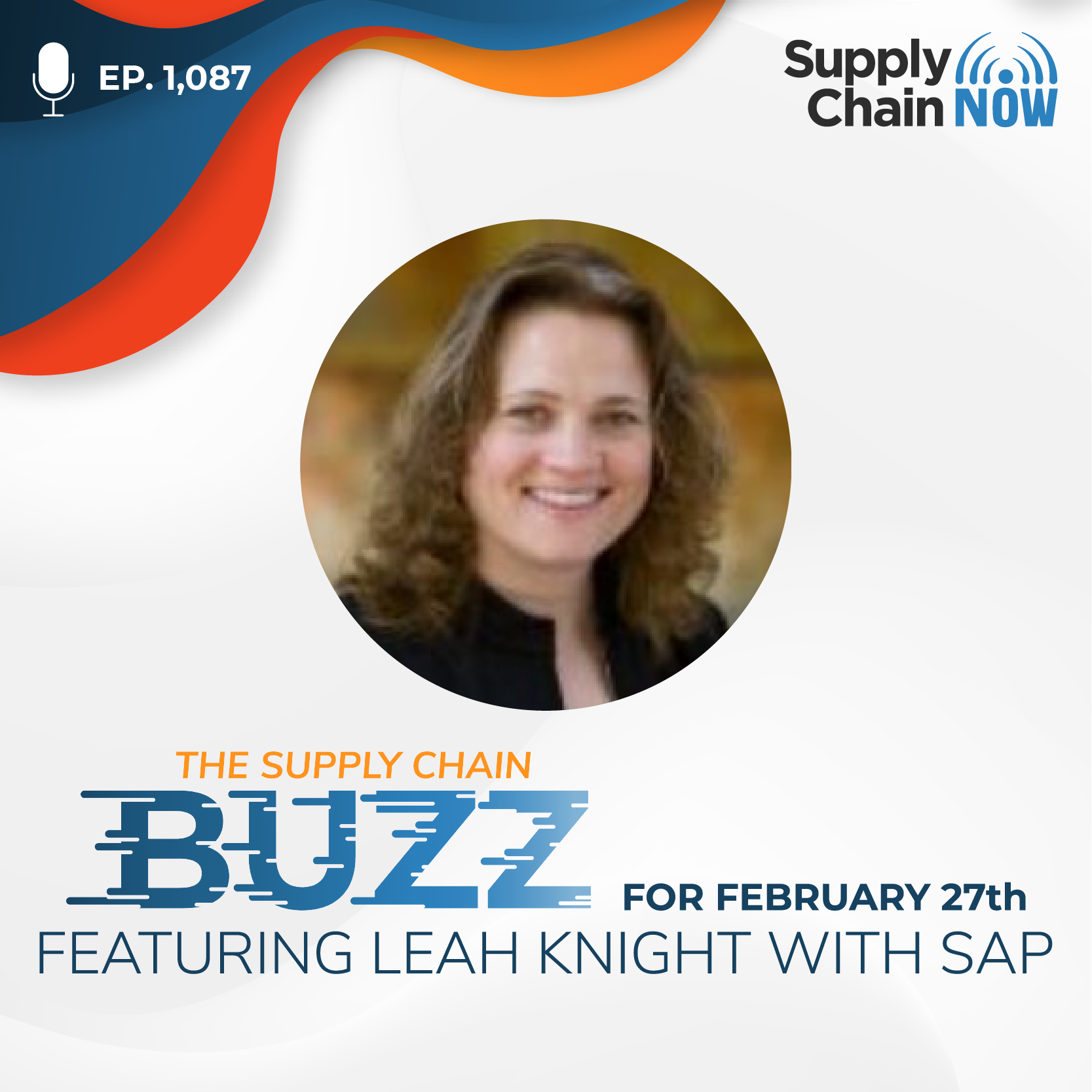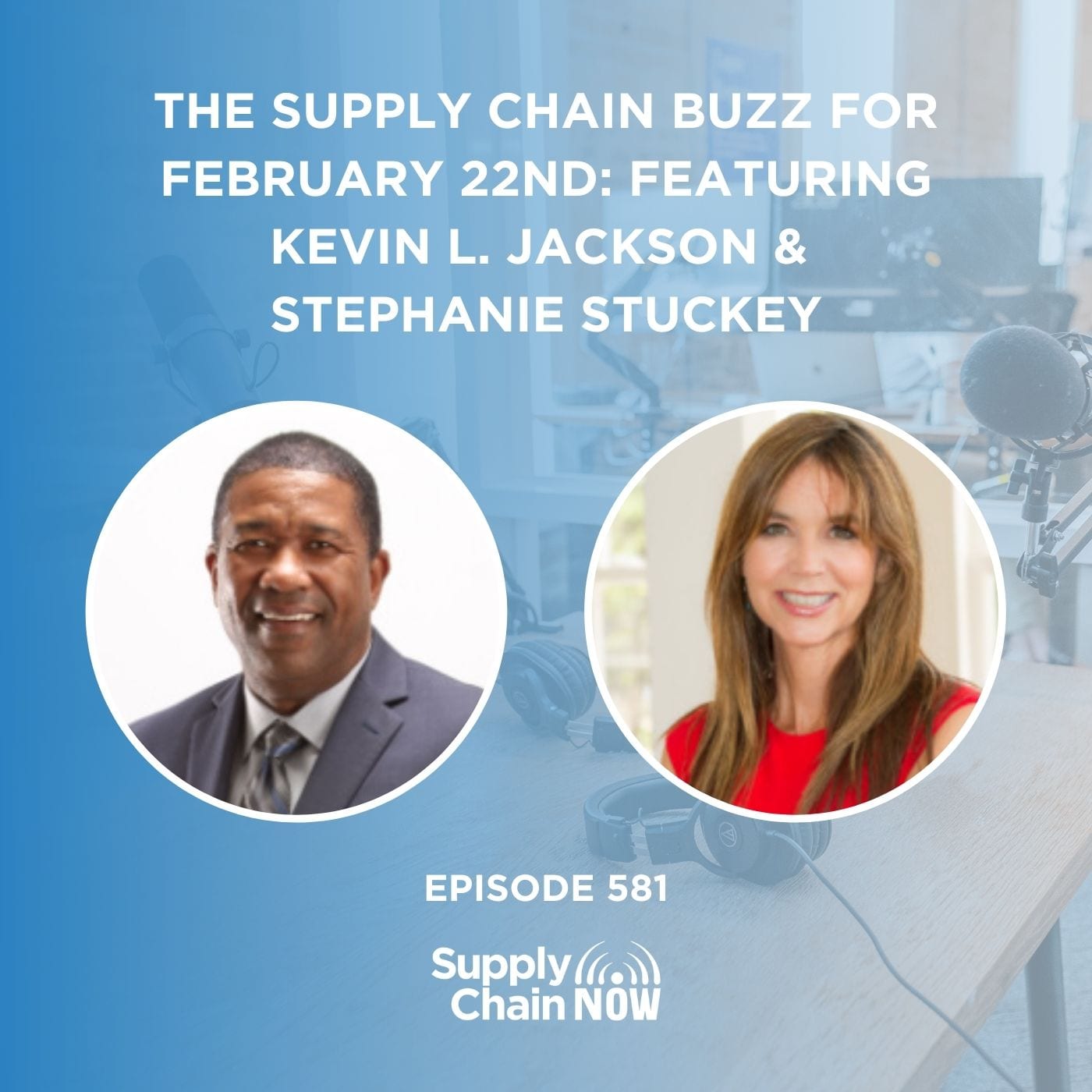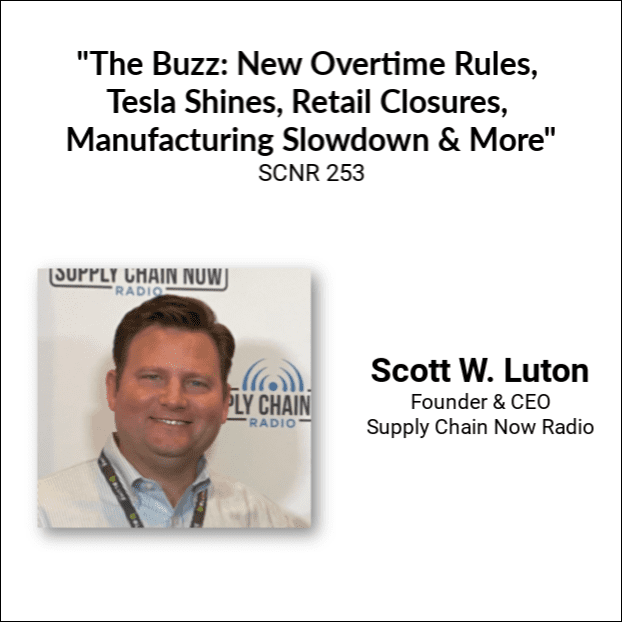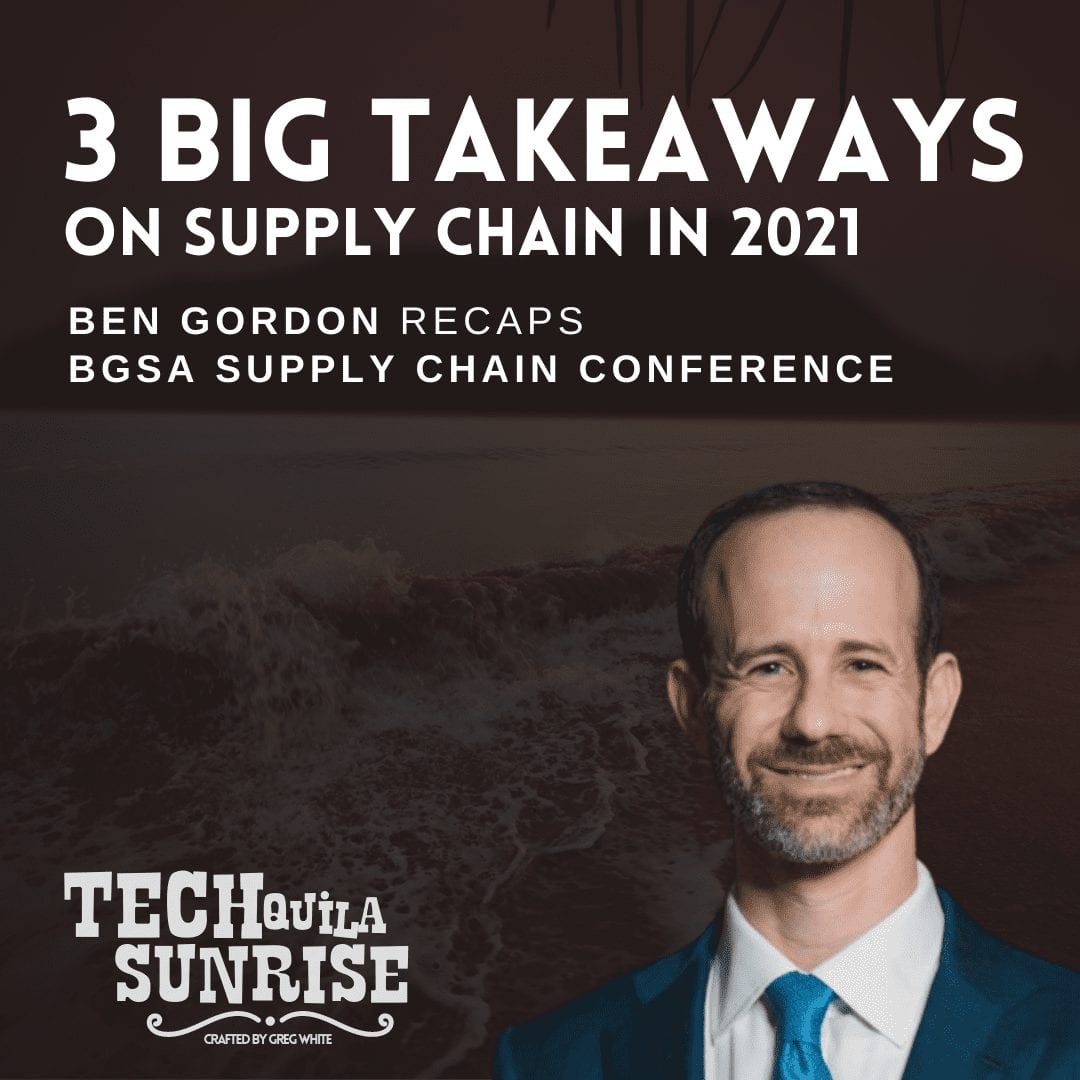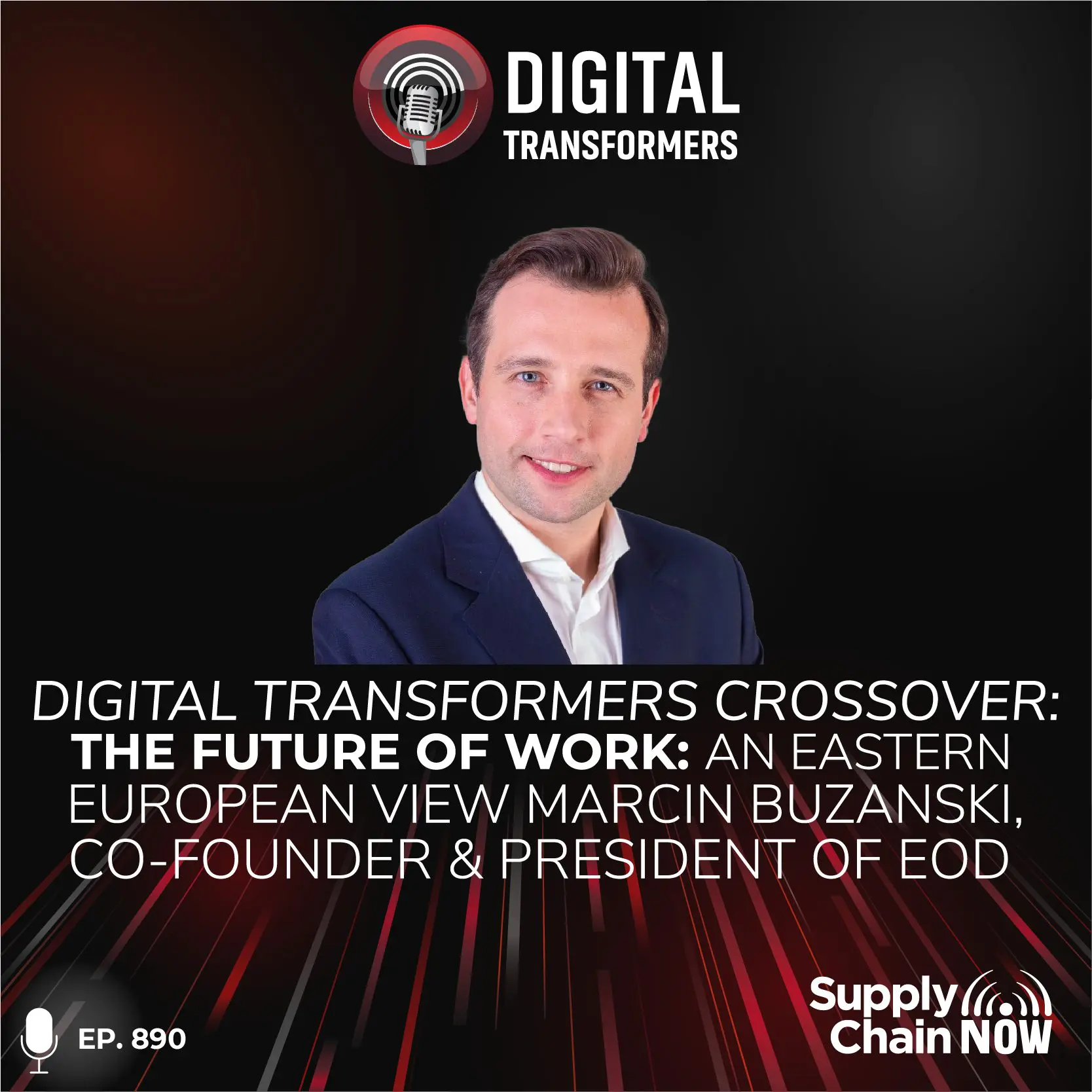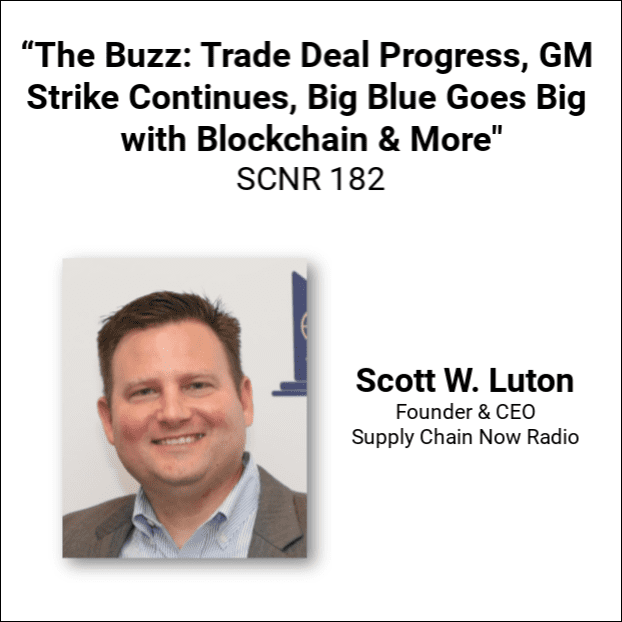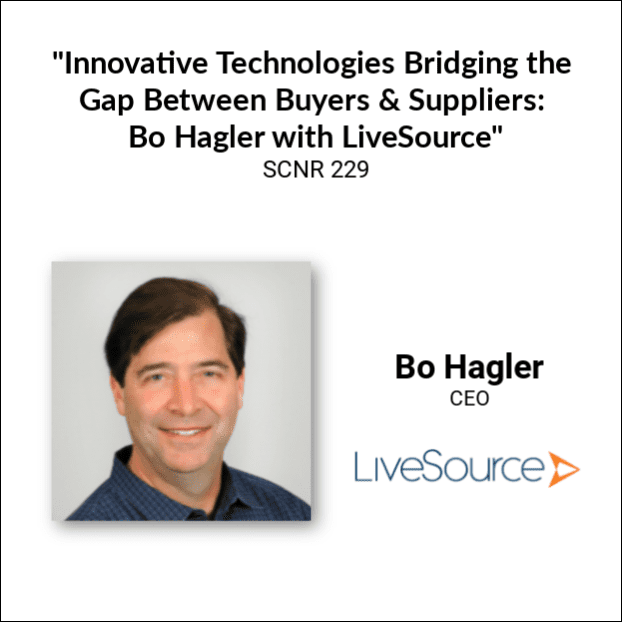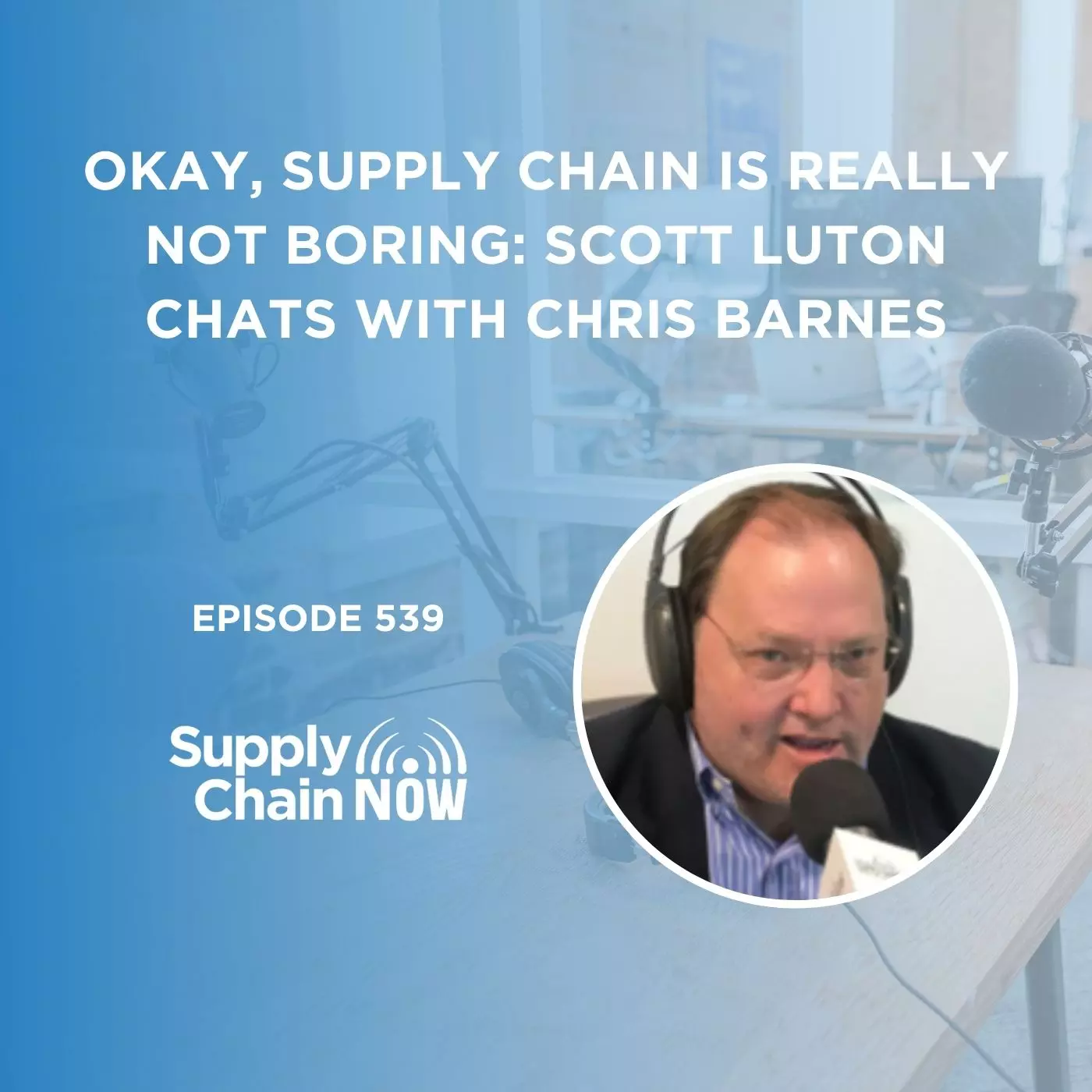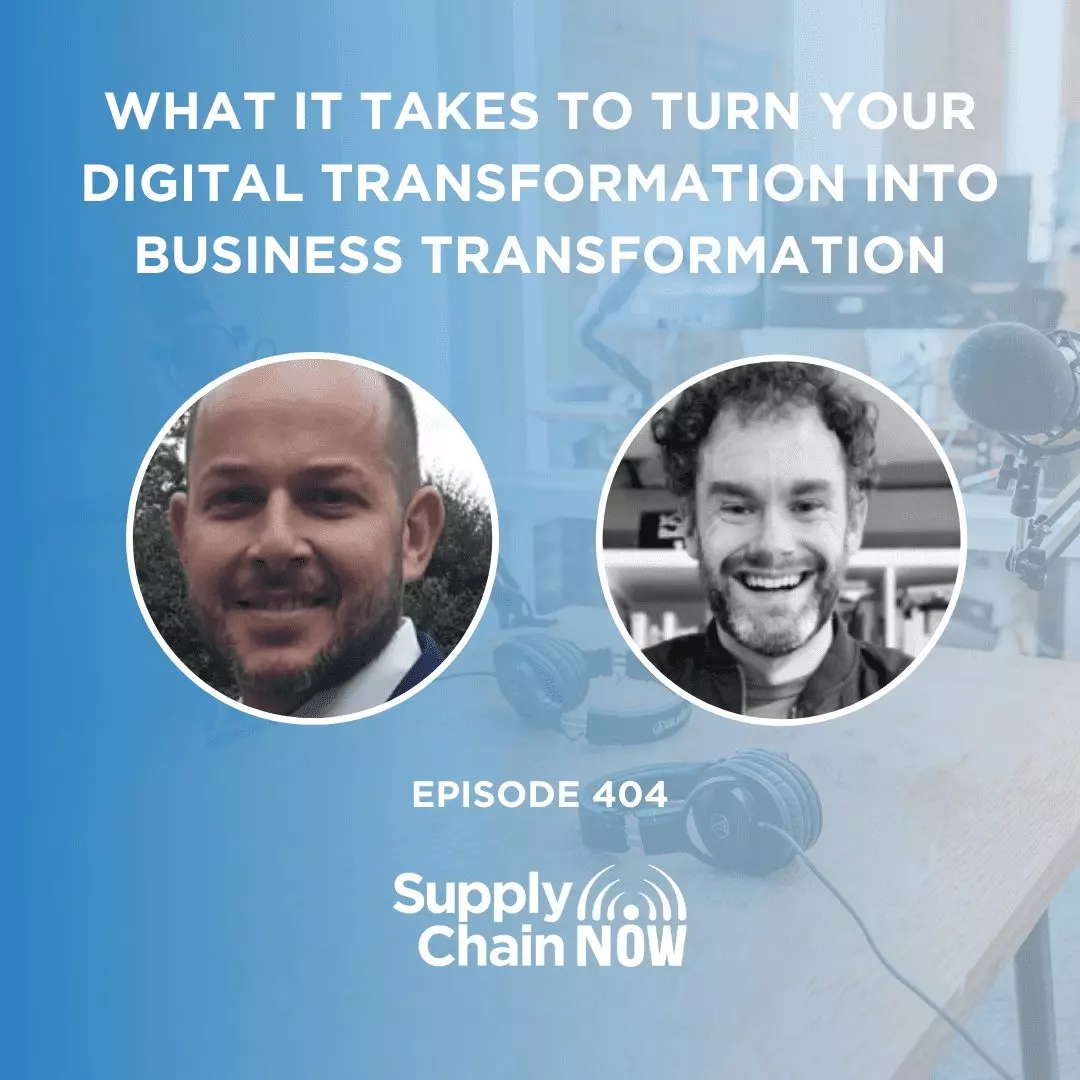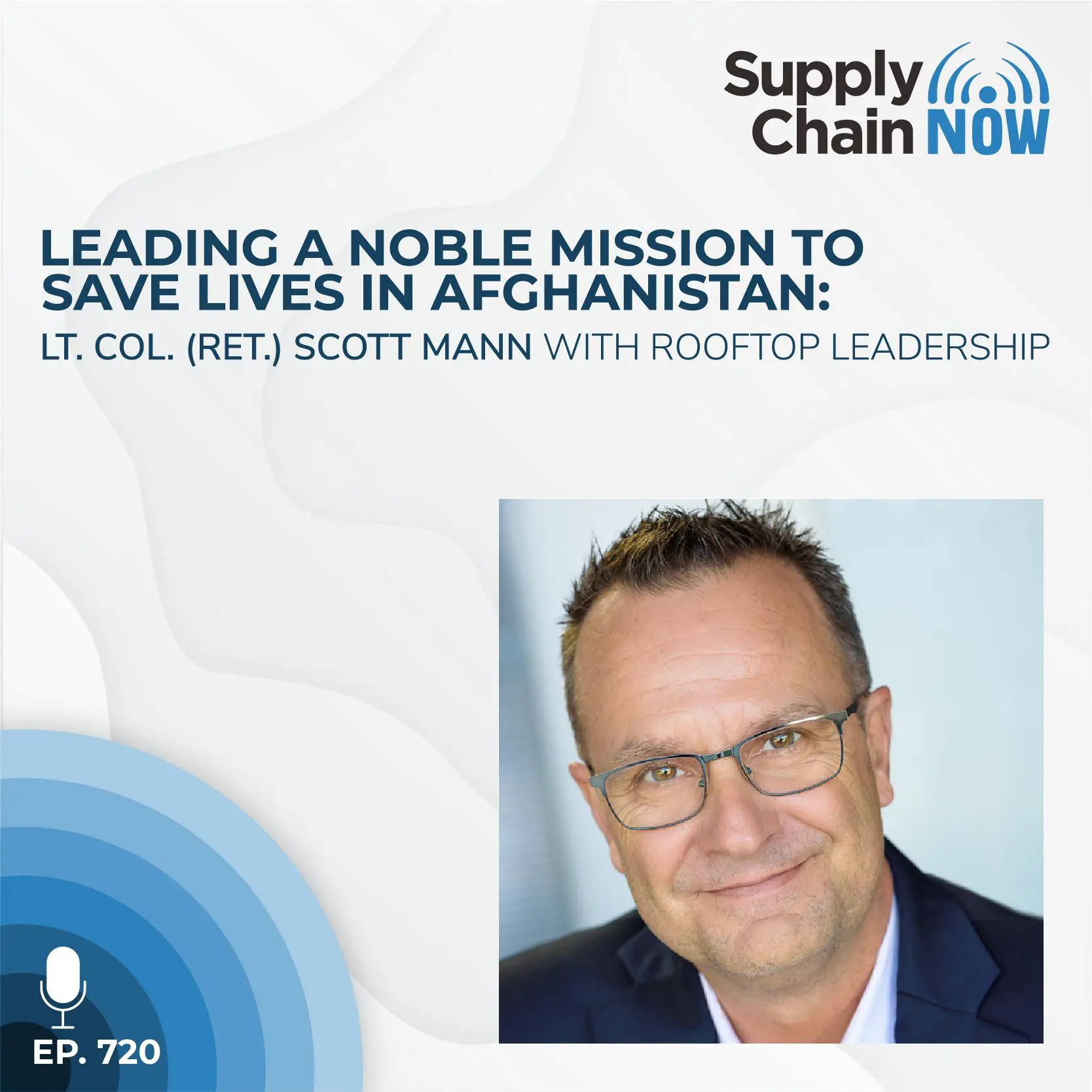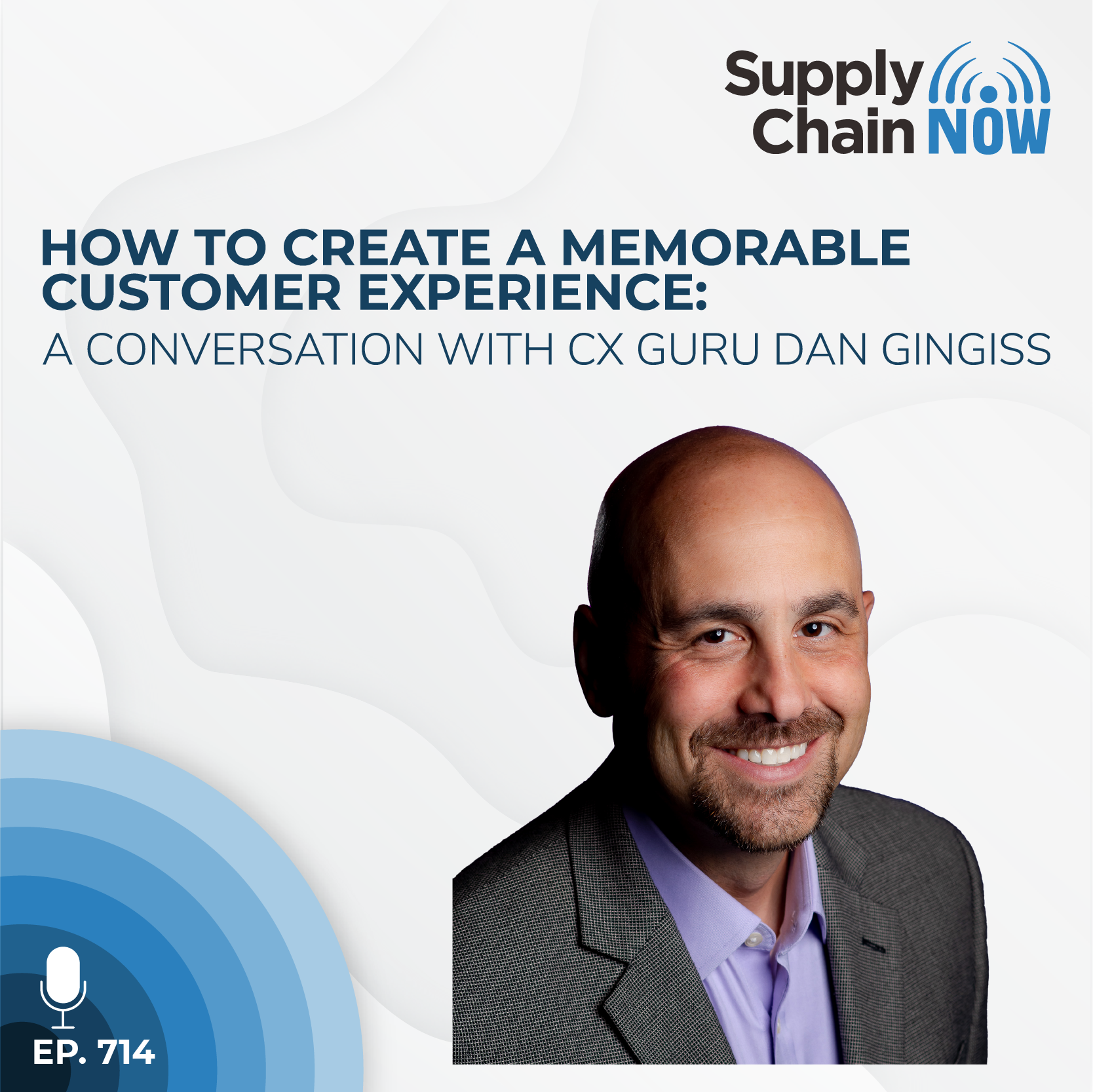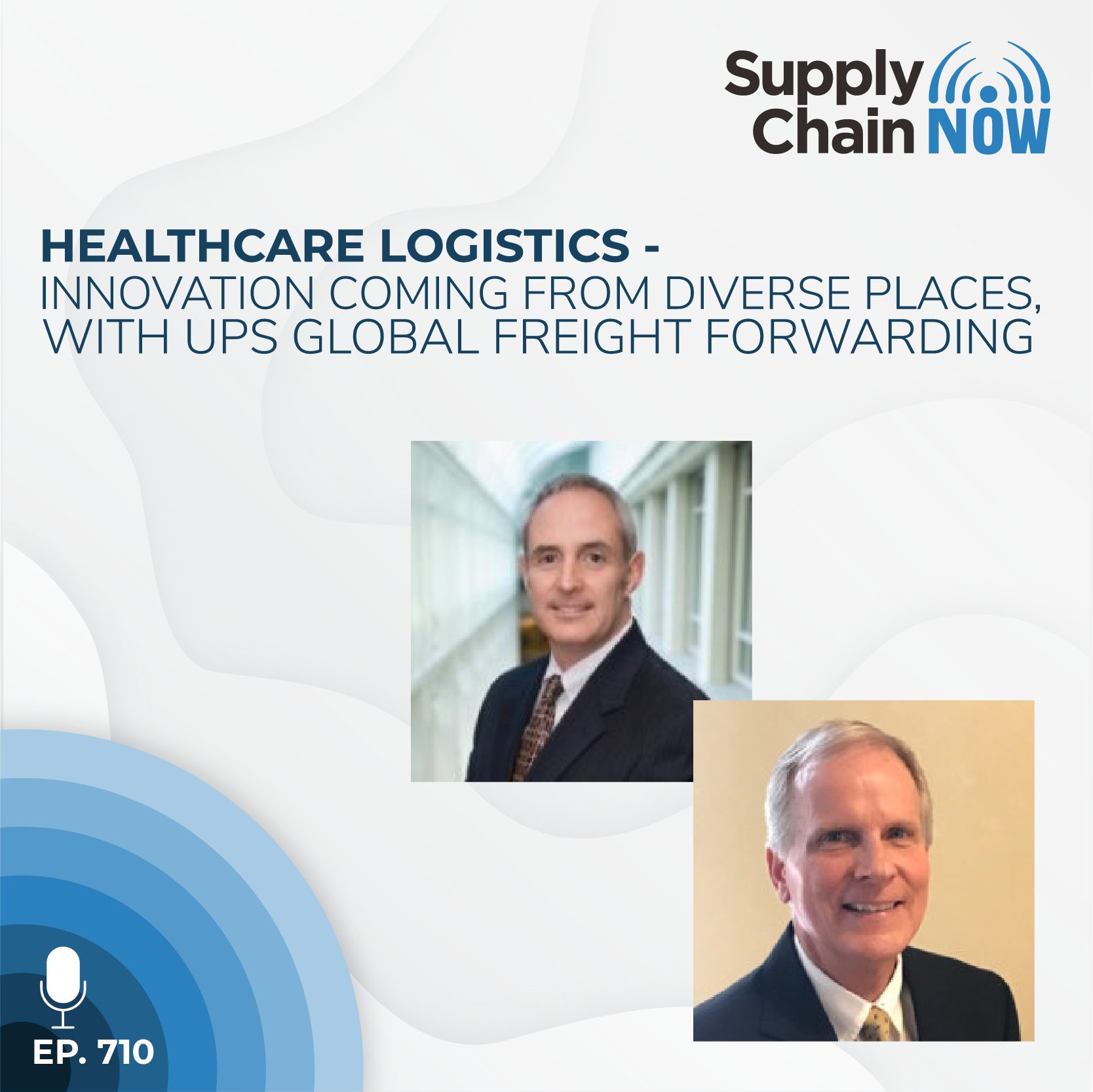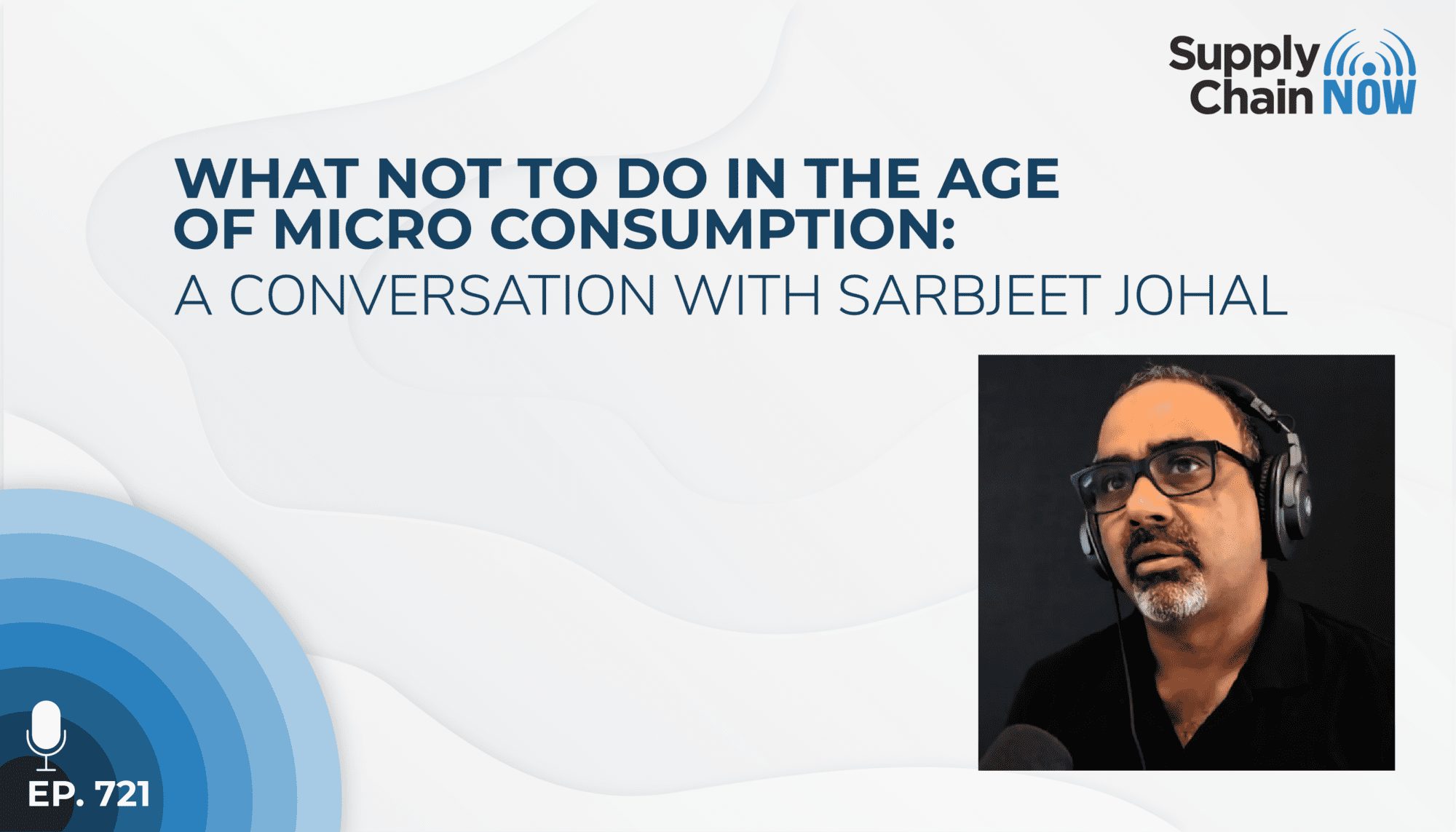
They will value your brand more based on the information you give them.
-Sarbjeet Johal
Episode Summary
Sarbjeet Johal isn’t just a technology thought leader, but also an entrepreneur, digital transformation leader, and successful investor and advisor. In this episode of Supply Chain Now, Scott Luton sits down with Sarbjeet to find out why digital transformation happens one byte at a time – and to get invaluable lessons learned and best practices for founders.
Episode Transcript
Intro/Outro (00:03):
Welcome to supply chain. Now the voice of global supply chain supply chain now focuses on the best in the business for our worldwide audience, the people, the technologies, the best practices, and today’s critical issues. The challenges and opportunities stay tuned to hear from those making global business happen right here on supply chain now.
Scott Luton (00:32):
Hey, welcome everybody. Scott Luton right here with you on supply chain. Now, welcome to today’s show. Hey, on today’s episode, we’re going to be talking with a technology thought leader, taking a deep dive into his journey and his professional background, as well as some of his point of view and expertise on what we’re seeing, not just across the technology landscape, but the entrepreneurial landscape as well. So don’t miss this entertaining and informative discussion we’ll be having here today. Hey, quick programming note, before we get started. If you enjoy this conversation, Hey, make sure you find supply chain now, wherever you get your podcasts from and click subscribe. So you don’t miss conversations just like this one. All right. Special guests here today. I want to introduce my friend. So our featured guests has built and enabled digital transformation programs around the world. He’s held leadership positions and a few of the biggest, most recognizable technology platforms that many in industry work and depend on. In fact, our guests has worked with more than 50 fortune 1000 companies in a wide variety of capacities, including advisory positions. He’s also very well connected in the Silicon valley startup and VC community. Having advised many startups on how to break through to the next level. So please join me in welcoming Sarbjeet Johal. Sarbjeet good afternoon. How are you doing?
Sarbjeet Johal (01:48):
Dang. Good. Thanks. That was a very flattering introduction.
Scott Luton (01:51):
Wait, I, I, I follow you across social media. I keep my finger on the pulse of what you’re doing and you are a mover and shaker and you keep it real, which I really admire in social media.
Sarbjeet Johal (02:01):
It’s all because of friends like you and they keep me honest and we talk offline as well. Hey, how I’m doing? And I, we give feedback to each other, very candid feedback. You know, I, I seek that and I give it, so I think a lot keeps us honest and more like, um, natural, relatable. Yeah. It’s fun. Actually. I’m having, it’s a blast and it makes us better, right? Yeah.
Scott Luton (02:28):
Feedback. I’ve got a dear friend Sarbjeet feel out of sync with art or procurement that taught me something. Or I stole this phrase from him. Feedback is a blessing. Feedback is a blessing. So just remember that as you’re getting maybe a lot of feedback from one person in particular, it is a blessing indeed, right?
Sarbjeet Johal (02:44):
Yeah, totally. It takes courage to tell the truth actually. And most of the time, and sometimes it’s kind of not that, you know, sweet pill, if you will, sometimes it’s like, Hey, but you know, you want to be nice. You want to be respectful. And you can tell when somebody is telling you the truth for you to improve in certain areas and then are they trying to help you or they’re trying to be mean and stuff like that. So you can easily, we can easily, as human beings can sniff that out. And I’m always appreciate somebody is taking that time to tell you about, you know, they are giving feedback, you know, and their time is valuable. Right. So always appreciate
Scott Luton (03:25):
Well said. All right. So Sarbjeet, before we get into some of the, some of your hardcore expertise, when it comes to technology, cloud, digital transformation and startup stuff, let’s get to know you a little better. It’s a sober sheet. Tell us, where did you grow up?
Sarbjeet Johal (03:40):
I grew up in a small village in India, Northern state called Punjab. And I was in a small village in very simple life. I belong to a farming family. My father went to school till the fourth grade. My mom dropped out of second grade. So my parents are not educated as we call education these days. But I think they’re educated, but they’re less school if you will. Schooling and education are two different things. I always say that. Yeah. And yeah, that’s what I grew up in. My aunt used to live in Birmingham in England. And they used to visit us very early when I was little. So that had had some impact on me in a lot of, uh, um, a yeah, a lot of other sort of things happening around me in that small setting, which, uh, shaped my thinking and, and brought me where I am. Okay.
Scott Luton (04:34):
So let’s talk more about that. So obviously your aunt played your mom and dad, but also your aunt played a big role in your upbringing. What, what’s a couple lessons learned that they instilled in you Sarbjeet
Sarbjeet Johal (04:45):
I think, uh, belonging to a farming family. It teaches you about patience. You know, you wait for the crop to go to the harvest season for six months and you’re putting all that effort. And then, and then you’re waiting and waiting and you’re nurturing that stuff. Right? So in, in, in, in tech, in our industry, we talk about, uh, hunters and farmers and people who grow stuff and people who want and stuff like that. So I can relate to it. I have I’ve lived that world. So that one was one having patience and hard work and just being very sincere in your, in your dealings. So like, you know, always thinking like wherever you go, whatever you do you think it is you’re doing for, for, for yourself. It’s it’s, it’s not like you’re doing somebody a favor, right. So if you do a good job, you will look good and have you do a bad job it’s you will look bad. So that kind of thinking was instilled, uh, from, from the early on. And especially from my mom, my dad was busy as a typical, um, male figure during those times, but mom was more interactive with us. Yeah. Hmm.
Scott Luton (05:57):
And your aunt that would visit from Birmingham, England, what knowledge or, or insight that she bring you and does she ever bring any gifts for you from England?
Sarbjeet Johal (06:08):
Yeah. You will never. I think whether it’s gifts, like my, my smiles go up. Yeah. She used to bring clothes for us. We being in the village. If I showed you four likes to have a photo. When I was a, I think maybe three, four years old, you were like, it’s like, we are from the stone age or something. People. Right. Like in a village, but she will bring more like modern Western clothes, sometimes like suits of our little kids, you know, like the jacket. And they were very nice looking suits. Like you make, you look like a little old man, if you will. And I was aware that my high school and elementary, and then that will stand out and office patio. And also along with that. But now I, when I, as I have gotten more older, I can look back. She brought a lot of thinking and ideas with her, which were more important than the gifts, the gift to look better back then. But ideas look more important than gifts now. So how people live in England, our goals have the same power for getting education, all that stuff, thinking she brought in and better sanitation for us in village. Look, you know, we were not doing that great cause everybody else around was like that and improved our thinking level and living standard in many ways. Wow. So
Scott Luton (07:31):
I want to touch on one more thing about, you’re telling me pre-show about athletics in India and you know, this we’re recording today’s episode. It’ll be released in a few weeks. So this news will be a few weeks old by the time we release this episode, but India’s field hockey team just meddled in the Olympic games. And so give us a little, you’re sharing a little bit inside track history on that. Tell us more.
Sarbjeet Johal (07:53):
Oh yeah. Yeah. I, as I told you, I’m from the state Punjab, it’s called bread bread, basket of India. It’s like California of India, fuel Punjab. And then all these farming families, um, uh, their kids played hockey, field hockey and field hockey was very, it’s still India’s national game by the way. So they, they won a bunch of gold medals in the Olympics starting, I think in sixties, 1960 and onwards. Right. And then they lost that touch. And since 1980, they haven’t actually, they want the most goals and field hockey all time, all time. Like no other country has won eight goals so far, but then they fell off the grid. They couldn’t even qualify for Olympics. And finally, after 41 years they got a bronze medal and a big portion of the team is from our state. India has a 27 states. I think if they keep changing number 20 used to be 25. So it’s a pretty big country. Right. But those players for being from that area, uh, it felt like Nick, our kids or younger brothers, one that, and then also the woman’s team also made it to semifinals. Wow, that’s outstanding. Uh, it sounds
Scott Luton (09:10):
Like it, it sounds like the Cubs, when they finally won the world series a few years back and after all that history, but to have a legendary program, like the Indian field hockey team that, that eight gold medals, the most ever all time, and they go through that at drought period, you should be celebrating these recent wins, especially in these challenging set of circumstances. So that’s good news to me. Okay. One final question, and then we’ll get into the heavier lifting. So if we were to poll your aunt folk and parents and he grew up with, and since then who you work with, what is one attribute or trait that they would say yes, that is definitely Sarbjeet.
Sarbjeet Johal (09:52):
I know it’s hard to talk, talk about yourself and I think positive note, but I think there was, they will say that he’s there when you need him. So that, that I think they will say I’m always there for my friends and family. Um, yeah, just, they just need to, I just need to know that there’s a need and yeah,
Scott Luton (10:14):
Love that. In fact, I love some of the, you’re such a great following social in particular Twitter, I’ve learned a ton from what you’ve shared there. And I love the pictures, of course, in this era where all events are digital. And so a lot of folks have been swapping images of events when the day has gone past and it looks like y’all had a blast and you are certainly there in the thick of things. Sarbjeet I love that. So one of the things I was looking forward to as part of this conversation, you you’ve appeared with us on, uh, the supply chain buzz, which is every Monday at 12 noon, but we didn’t, we couldn’t take in that interview, take a deeper dive into your journey because you know, you’ve worked with a ton of highly recognizable, big brand companies and startups and all points in between. So if you could, instead of going position by position, which I bet would be fascinating, but for the sake of time, share a couple of positions that really helped shape your worldview as you’re navigating through your professional
Sarbjeet Johal (11:05):
Journey. Yeah. That’s a great question. I think my worldview is informed from my upbringing. Number one, number two, my education number three, you know, work experience, right? So, um, upbringing from being from a rural area. So I keep that in mind that there’s a big portion of the world lives in rural areas. So when we talk about diversity, it’s not only the diversity by race or gender or color, it’s also by economic conditions. And also by shape like a Metro to the whale, like a small town, you know, people need to be brought into the, into the sort of game of fuel. So that’s one side of things and the second is my education and economics major. Uh, so that informed me in my decision-making and, and forming a worldview of like being a systems thinker. I sort of mixed out with, from technology side to the economics of things. And
Scott Luton (12:00):
That’s a dangerous mix. It’s a dangerous mix. It’s a dangerous
Sarbjeet Johal (12:04):
Mix. Actually. I think it’s a very cool mix. Actually. It makes a good recipe for, uh, putting your ideas and your narratives out there. So the third thing is of course my work experience, right? I will mention a couple of things. One is that when I was, um, after a master’s I was pursuing my PhD degree and I was in San Diego, which is capital of Punjab state here in India. And I used to work with the thing that, that, you know, working with a think tank where everybody else was PhD and you were pursuing your PhD. It was fascinating. I worked with the world bank advisors, IMF advisors, and many scholars from us, UK and other countries. They will visit us. We will have all these meetings and publish the research. It was great environment and that never got out of my mind, you know, uh, the value of research, uh, pre and post programs, you know, like many times we do studies before we launch something, right.
Sarbjeet Johal (13:03):
Especially when the programs are bigger, you want to make sure that, you know, money you’re putting in is going to right direction. And many times you want to analyze what you did and did, what are you successful if you are not, what were the lessons learned and all this stuff. So the value of those analysis, I think it stuck to me. And during my work career, I worked with the only company I have worked with, which was sort of non-tech in certain way, was visa international. Most of my career has been with big tech giants, like VMware EMC, um, and, uh, Rackspace and Oracle and PeopleSoft. I work there as well. And a company called commerce. One that actually was one of my best 10 years. Um, uh, one commerce on a B2B darling during.com days. Many lessons learned, learned there. What, like I usually say, like, you go to companies, some companies, you will go to any your carrier. You will learn what to do. And many companies you will go to and you will learn more of what not to do. And that’s equally important. I think it’s more important to know what not to do than what to do. So, uh, I’ll, I’ll stop it there. I can keep going.
Scott Luton (14:24):
That’s a litany of some of the who’s who’s lists on big technology players. What’s one thing here I can follow up really quick. I think you can learn as much if not more on what not to do as you can. When folks tell you what you should do during those corporate positions, during those big tech positions, was there one, what was your chief learning of what not to do as a leader?
Sarbjeet Johal (14:48):
Oh yeah. And that’s easy for me actually. I’ve seen happened like two times in my career with two of my companies I worked with. The one thing you don’t want to do is like change the narrative on the fly. It confused the heck out of the market. And people will shun you as a, as a customer. Even if they love you, your people, they will say like, you people don’t know what they’re doing. Right. So that happened at commerce one, we changed the direction. Like you’re going at a certain speed. You know, like if you know, you’re driving always use analogy of driving fast, you know? And then you take 90 degree turn what happens? You crash, you crash, right. People crash when they take turns at high speed. So, um, you gotta slow down. You gotta, you gotta give the ample time to the market to digest that you’re, that you’re, you’re pivoting and stuff like that.
Sarbjeet Johal (15:39):
And you don’t want to off your customers who love your, what you used to do. I also use, usually use the analogy of like a, a restaurant. I use food analogies and you know, Madison analogies. And I talks like, just imagine there’s a restaurant in a city, like you live in and let’s say they have, they’re known for Mexican food and it’s a Mexican restaurant. Right. And they’re known. And all of a sudden they put a border on their friend in front of their building and in the newspaper locally and on digital these days like, oh, we do best sushi. Right? Guess what happens? Right. People who like sushi, they’re not going to go there because there are, they will say a lot of these people are not sure. She people, they are known for Mexican food and I don’t want to go there. Right. And people who used to come to you, they will get equally confused. Like what? Like they ha they must have hired new chefs and they are not doing the, what they used to do. I’m not going to go there. Right? So incomplete confuses the heck out of market. And don’t change the messaging, the narrative, you have to control your narrative. You have to control your story. You are in charge of that. I love
Scott Luton (16:52):
That because confused buyers don’t become completed buyers that make the transaction oftentimes. So that’s a wonderful tip. So take your time, words, matter your message, your positioning matter, uh, do it in a deliberate and planned out manner. So let’s, let’s talk about digital transformation. So by all accounts, you know, you’re a real, and this word, this phrase thought leader gets tossed around everywhere these days. But you know, you’re the real deal. Holy field, right? When, especially when it comes to digital transformation cloud technologies, you’ve already spoken towards, let’s talk about digital transformation right now, because whether you like it or not, whether you’re actively engaged in transforming your business digitally or not, you’re going through it. It’s just how much progress you’re making, uh, or lack thereof. So 2.2 part question here. So first off, what have you seen? What one or two things have you seen companies get right. When it comes to digital transformation and on the flip side, what’s that, what’s those one or two things that come that some companies just can’t stop doing the mistakes they’re making when it comes to their DTS strategy.
Sarbjeet Johal (17:57):
Yeah. I think that those are loaded questions are sort of looking at your factors. The, the one thing with the successful companies who are digitally transforming, they’re getting it right. Is the rate of experimentation or what I usually call AB testing on their business models, on their product, how they create stuff, how they market it, how they sell it. So they, they, they have like a handle it holistically, right? Not just one part of it. Right. And they, they are, um, bolder in their vision as well. And they, their senior leadership is onboard. It’s not like half-hearted sort of, uh, approach. They take, they, they, they announce it. But at the same time, they, they make that change and some smaller chance. It still jobs. Well, with what I earlier said, that what the approach is that they don’t take sharp turns, right? So they can create digital twins. They, they don’t disturb their existing customers at the same time. They give them the choice to move to the new way of doing things. And it takes courage. It takes investment, it takes patience. Um, it takes talent. Yeah. That is the key and good leaders always hire the best talent. I believe.
Scott Luton (19:21):
I love that. And they’re engaged and it’s a priority for them. What I’m hearing. I love that. So on the flip side, beyond the reverses of some of those things you’ve shared, what are some of the other mistakes that you’re seeing companies make when it comes to digital transformation?
Sarbjeet Johal (19:37):
Hm. I think, um, the big mistakes on the flip side is like anybody who tries to do a big bang approach. They usually like most often than not, they fail. So you can’t have like, okay, like we’re going to change everything within the next three or four years. You can’t keep, just do big bang approach. You have to, you want to change everything, but you want to take small bites. I usually say it’s age of micro consumption. And that means it’s age of micro change. Right? And it’s micro age of micro production as well as if you’re, when you’re a supplier. You want to give a change to your organization in very smaller chunks. And also you want to change the way your organization is not laid out and people when they don’t change their organizational change sort of layout, and they they’re looking for change, they won’t happen.
Sarbjeet Johal (20:31):
And there’s a thing called Conway’s law. Um, and you can look it up. And Conrey law actually says that in technical or engineering focused organizations, what you produce, um, that outcome will mimic almost like the, your structure. If your org is like very fat kind of thing, you will produce that kind of, those kind of products and or services like very monolithic in nature. If your organizations are lean, uh, you will create lean like microservices, kind of things, or small, you will release smaller things at a time. And, and I’m a big fan of micro consumption, sort of that narrative. I talk about it every time I talk to anybody, I sprinkle that in there because I think somewhere, somebody will gravitate to this idea and I know people who are doing it. I think my, I think Amazon has mastered the game, my Microsoft as copied that from them.
Sarbjeet Johal (21:28):
They used to be very, very good at that. And then they lost the touch of Microsoft for a while, and then they’re gravitating towards that. So the whole idea is, for example, when you look at AWS, right, their cloud services, they only use like one little tiny service, every, you know, let’s say six days or eight days, whatever that is. And in a year they ended up losing a lot more than their competitors, but it’s very digestible, right? As it, as a developer, as an architect, I can learn that thing, a small thing in, I can weave that into my day-to-day stuff, right. As compared to another vendor or their competitor, for example, I will not name the names because I’ll be shaming them and they will release like 30 things, you know, every three months or, or 60 things every six months. And it’s more, it’s monolithic in nature if people go, well, I can’t, I don’t know what to do is I don’t have time to read all your release notes and this and that. So yeah. One bite one step at a time. Yes. Yes. There is
Scott Luton (22:33):
A big, best practice shot. I’d also add, uh, not, not from a technology standpoint, but, um, from a continuous improvement standpoint, of course, that incremental, uh, advancement and gains G L L G was, uh, was famous for that back in the traditional GE days, I’ll call it, you know, don’t give me 25 points, you know, from year to year, but give me that steady drum beat of, you know, two to three points of improvement. And, and, and I love how you apply that to, uh, technology gains. And that’s, that’s some of the good things you’re doing lead that you’re seeing leaders do when it comes to digital transformation. Because, you know, when I think about big massive projects and, and the non one bite here, one bite there, I think of these, these these hundred and 27 slide, PowerPoint presentations and long emails about how to, and step by step 3000 steps, but who does have time for that on top of what they’re trying to get done in their day to day. So I love that. Sarbjeet
Sarbjeet Johal (23:30):
Okay. Yeah. Actually, Scott, I’m just elaborating a little bit on that because it’s very important, I think, is that in your communication as well? You want to know these are in micro chunks as well, you know, so that is very important. Your marketing has to be done in small chunks as well. Yes. You want to have a bigger umbrella sort of story stream if you are, but, um, you, people don’t have attention for, for them to listen, to read a white paper these days, or read like, you know, a long blog, you know, and just be quick and respect their time and come to the point where he quickly and just that’s that that’s what works and be honest, you know, and, and also be humble, uh, when you make a mistake as a brand on it, those are the things which are, I think, super important. I
Scott Luton (24:19):
Love that I may be in trouble in this succinct era that we’re living in Sarjeet, but that’s okay. Hey, we lead into it and embrace it. I want to shift gears. So as a, as a founder and entrepreneur, I love a lot of the thought leadership and the comments and the conversations you drive out there, especially in including what you do to engage and support and invest in the entrepreneurs out there in your market that you live in on the west coast, near Fremont. So I want to dive into that more. So we’re going to shift gears from digital transformation to talking more about Sarbjeet the startup advisor investor, a startup whisperer, so to speak. So what are, whether it’s some of the startups you’re involved in, or some of the startups that you’re admiring from afar, what are some of the, that that impressed you? And it really hit your radar here lately?
Sarbjeet Johal (25:09):
Yeah, I actually, I got that bug. Um, when I was working, uh, at Rackspace, I used to work with 500 startups incubator, which is number two incubator in the bay area after Y Combinator, right? So Y Combinator is number one. They are neck to neck with, uh, uh, Techstars, Techstars is nationwide. It was funny enough. They don’t have any presence in the bay area. We have plug and play. And we have like, we have hundreds of incubators here in the bay area, but, but these two main, uh, Y Combinator and 500 startups. So the contact book from there, um, because we had a pro marketing program with them and now I used to go to demo days. And I, so my God, these two people coming from a different countries and many times, and, you know, just college graduates, they get together and cook something up and, and launch it out there, no fear, they travel thousands of miles and sometimes get a special visa to come here to start these companies.
Sarbjeet Johal (26:06):
And I saw like Walmarts of the world and PayPal parts of the world, sitting in the audience. And many times they will acquire this company and what we usually call it, talent, language acquisition, two young lads. Uh, we example, they built a piece of software, which digitizes your seat. And McDonald’s, McDonald’s Walmart. People were sitting in the, in the audience on demo day. They acquired their company right that day when they saw their idea. And, uh, they pay them, I think between one and $2 million. And for the young caters, it’s a lot of money like this. They just started six months back. Right. Walmart said, we will say, you know, you know, how many hundreds of thousands of dollars they spend every month on, on the paper to print the receipts, right? So, cause Wallin dictates the savings if you will. And, um, that’s just one example, but it happened all the time.
Sarbjeet Johal (27:00):
So I, I wanted to do that in east bay where I live on this side of the bay. And when I got an opportunity, I invested money into a new incubator called battery. And we opened that, uh, next to UC Berkeley, uh, two blocks away and brought her to life in that incubator has taken a hundred plus startups through the program so far. Okay. And how old is the battery? How old is the battery? But yeah, Badgley is, uh, I think seven, eight years old now. Yeah. Seven, eight years old. It was a baby idea. And then we got together and put money into it and brought it to life. And then, then I started interacting with VC community and academia being close to UC Berkeley, and then the other people from other side of the bale, you know, from Stanford and other schools will come their professors and all that. They, the thing, the one actually just a side note here is that. And I usually talk about this, uh, this thing that the, the gap between what we teach in academia and what we practice and industry, is there a big gap and that gap is different in different geographics in the bay area. That gap has gap is very narrow. That’s why barrier barrier, because we are intermingled like this specialty Stanford, like all Google came from Stanford and all this companies, founders of Instagram,
Scott Luton (28:22):
I’ll think it met at, uh, Stanford.
Sarbjeet Johal (28:24):
Yeah. Yeah. Lot of stuff came up to Sanford and we know that other companies come from east coast schools as well. You know, those people, mark Zuckerberg moved from Harvard to here to do stuff and, and got other Stanford people in there. So I think, um, that is it’s, uh, I always talk about is proximity. You know, proximity is very important, proximity, physical proximity, and you’re taught proximity. You know, that your culture proximity is very important and you got to, you want to leverage that. So I’m going into tangent here. You know, you asked me like, wait, what, what areas are passionate, passionate about startups? I am passionate about like all the lease, a new breed of startups, which are working on the AI and, um, an in M AI ops when they come in, because I traverse in cloud area a lot now. Right.
Sarbjeet Johal (29:19):
As my, my thing, you know, if you will. So any company which is trying to automate take the automation to the next level, using the machine learning, right? So, so things are self-correcting and self-managing self scaling that we’re going there. And then there’s a lot of investment going into those areas. And I’m fascinated by those startups. And I learn from the startups I advise, um, uh, some of them are in this area. Some are not, but some are just trying to solve the traditional problems in operational problems for your efficiency cannot of, for startups. You know,
Scott Luton (30:01):
Speaking on AI, if I can interject for a second here, I, you know, one of my favorite, uh, aspects of our last conversation with you and my typical co-host Greg white partner in crime. He’s awesome, man, when y’all, when y’all got together and were talking about real artificial intelligence and versus all the labels and the MI twos that are out there, it really was fascinating. Speak to that for a second because you hear the, you know, artificial intelligence, AI that’s out there, it, um, marketing professionals, Hey, Hey, more power to them, but they really embrace that and slap that label and everything, but speak to that for a second, because I think some of the more powerful platforms, companies, startups, uh, you name it that really enables true a AI driven technology. Those are the ones moving the needle, versus it being a marketing component. Speak to that for a second, if you would start Sarbjeet.
Sarbjeet Johal (30:55):
Yeah. I, I think AI, even though AI is very old term, we will say that all, we have been doing this from students in sixties and seventies and all that stuff. But I think we just, in the very early stages of it, right. And in many times, like something can be there, but it cannot take off because there’s things which need, uh, we need a sports structure around everything. You can build a rocket at home, but you can’t launch at home. You need a launch pad, right? So you need all kind of bells and whistles like the pad and safety and all that, uh, regulations in many cases in your industries. So long story short, I think the convergence of technology is what makes something go like flight start flying really fast. And I think there’s a convergence of faster compute, better networks, faster storage.
Sarbjeet Johal (31:51):
And on top of that, on the software side, the once we got ahold of, you know, rest API APIs, like we tried different things. We tried, uh, CORBA, we tried IO, IOP people who are very technical. They will know what I’m talking about. We try D come from Microsoft for gluing things together, right? The digital glue was not there till we got rest API APIs and the rest is everywhere now. And I strongly believe in that. So answering your question, um, I think you have to think of, um, AI as argumented intelligence, not artificial intelligence. I always say that it just argumentation of human intelligence. There’s no way we can replace the human intelligence with machines craned by data. It’s not, we’re not near that anywhere near that right now. Um, because data is after the fact thing, we know that, right. And we can’t predict things as humans. And, um, I usually say that the smartest system is the one which can take into account most number of variables while making a decision on most number of parameters. If you will, if you are the quarter, you will understand that when you write a function, you pass the panel meters to it. Right. I remember that. Okay. Sorry. I’m Jean. I started
Scott Luton (33:15):
In computer science in college working with a C plus plus and compilers and iterative aspects of, of learning how to do that. And I found out quickly that that was not my gift in life. So you took me back for a second to those painful first semester or two learning C plus plus. But anyway,
Sarbjeet Johal (33:35):
Remember pointed to the pointed to the pointer, remember the discussions, what is it? You know, so, and that’s why actually, uh, abstraction is our friend in, in, in software and systems actually in journal, but in software, in particular. And, uh, we abstracted C with C plus plus, right on that note, I took a picture with the C plus plus founder, uh, starstruck, Bergey. I can never say his name, right. Uh, at here in mentor graphics in 95. Actually. I still have that picture here with me. Awesome. So I’m in blank.
Scott Luton (34:08):
Well, Saul, you know, speaking of pictures, famous pictures, I saw a picture of you. I believe it, um, Twitter’s
Sarbjeet Johal (34:15):
Headquarters, right?
Scott Luton (34:17):
That’s gotta be pretty cool. Did you, was that a visit or did y’all do some work together or what?
Sarbjeet Johal (34:23):
Um, my neighbor actually works there. Okay. Here in Silicon valley, our neighbors, we don’t make many times, we know that don’t know their names. Like we don’t have to remember their names. We’ll say that’s Google, that’s Cisco. That’s, you know, Google like Facebook that’s Twitter. So, um, yeah, like I went for lunch with my buddy there and I know quite a few people there and, and at Facebook as well, I know a bunch of people that it’s like, you can’t avoid living here for 25 years. These companies are born after that. So a bunch of people, I know they work there. Yes. Yeah. Continue
Scott Luton (34:58):
Now in this kind of getting back onto the startup segment here. So clearly you’re an advisor you’ve been, you know, some of your professional career has been with some early stage companies. You were investor, clearly you have helped found a incubator to help many startups. You know, the bachelor that you, you mentioned. So two points here, what do you look for when it comes to investment, as you know, personally a Sarbjeet, but then also, if you could give some advice to some of the founders listening that may be getting ready for funding rounds or getting ready for their pitches or what have you, so share some advice if you would.
Sarbjeet Johal (35:35):
Yeah. It’s a question, two questions that are there sort of flip side of the coin. If you are, as an investor, you’re looking the number one thing you’re looking four is the team. And then, and second is the number after that, his idea, you know, of course the idea is important as well or their business model. Now all the stuff, my team, because if a good team can pivot on ideas, right. Team with good idea is not a good thing, uh, from, for investment because they, they will be stubborn. They will not pay it. Yeah. And, um, yeah. So you want to make sure, sure. That people are driven. They are passionate, but solving a problem. They are not like, get rich quick kind of, they’re not in it to just think like Nick millions of dollars and retire or something. Yeah. Right. Do something else.
Sarbjeet Johal (36:26):
So you want me to people who think long-term and they pay are there to solve a problem. And many times you want to invest in people who have had that problem themselves or their proximity to the problem is very, very close. If you’re everyone in the close proximity of the problem, if you will. So that’s the, that’s the main thing. Um, we can talk about other factors some other time, but, um, that’s, that’s the top of the sort of priority. Yeah. Gotcha. Yeah. Team idea and timing is important as well. So those three things there, but on the, on the other side, when you are a founder, right? Uh, the key is you want most probably should get a co-founder is lone person is they have handicap. We all have our blind spots and you should get somebody to work with you, you know? And then it, because it will kill your blind spot.
Sarbjeet Johal (37:27):
Number one, number two is like when you go for, um, investment dollars, many times these startups do and they will take you seriously. Uh, it’s it’s hard to fund the loan founders, um, in, when you’re seeking money, try to seek the smart money rather than just playing money, you know? So try to go to people who can’t add value to your, um, operations, they know ins and outs of your domain, your vertical, what area you are in. So try to get the smart money, uh, even if it’s a little more expensive before you get the smart money, make sure you have some advisers on, on your side from that industry. What you’re trying to work in, that goes a long way actually. Yeah. And you can, uh, master the master, the art of ask, you can get some good advisors on your side. For example, if you’re in media and entertainment, you’re doing a startup in the media and entertainment or something, get somebody from Hollywood, you know, like, um, like, you know, seriously, you can, you can, you can just ask like, Hey, can you give us like, um, you know, five hours a month or two hours every month, or pick your brain and we’ll highlight you.
Sarbjeet Johal (38:45):
And then we, we value you and then give them some part of the company, some share some something you need to, and if you don’t know them directly or try to find out a way to get to them somehow. So I think you want to, it’s not that you want celebrities in there or something it’s not like that you want the know-how of that industry. Like, you know, the car shows, you know, deep down people have, who have done work in that industry. Uh, you want that, you know, because without that, you will be kind of shooting in the dark.
Scott Luton (39:16):
I love that to recap to two key points I heard there. Number one, don’t just take money, be very deliberate of finding the smart money folks. Don’t only bring the, the financial wherewithal to the table, but the know-how the value coaching, mentoring, skillsets, you name it. And then the second thing that I heard you say there served Jeet that I love is be bold. You know, if there’s a big name, small name, all points in between that is a bonafide and dim a demonstrative leader in what you’re doing, reach out, you know, get creative of how you can bring that individual into the fold to help you move faster and more successful. So I love that bold and fearless Sarbjeet.
Sarbjeet Johal (39:56):
Yeah. And, and let me add two more things, which I think actually is my, one of my areas I’m very passionate. You tell one is that you need a launch pad. As I said earlier, you can build anything anywhere but larger. You need certain, certain things in place, right? So don’t shy away from incubators or industry consortium and stuff like that. You know, don’t, don’t, don’t be afraid of, of just giving piece of the pie or spending some money to belong to a bigger sort of platform, which will, will highlight you, uh, which will, which can make you grow. Like, you know, um, let’s say if not a hundred exit 10 X faster rate than what you will grow otherwise. Right. So I think that’s very important. So, um, that’s a big point and sometimes
Scott Luton (40:47):
Resources are right up on your notes. Right?
Sarbjeet Johal (40:50):
Exactly. And then B2B and B, do you see, uh, two, there are two different animals when you, when you were talking about the startups, right. Especially from go-to market strategy, point of view, which is very important, go to market strategy is super important, especially both proposed B to C in B2B, but especially for B2B, perhaps I’m biased there because I work in that sort of environment. I have lived that world, like, um, it’s different, how there are different techniques to go to market in B2B. There’s a vendor size sort of, um, uh, concern or objection when you’re trying to sell something to a company, especially if you’re in high tech B2B, the people will not entertain you. Like why would I buy some key component of my system from you? You can go bust tomorrow, financially, and what will I do? Right. So the vendor’s side matters.
Sarbjeet Johal (41:44):
So for that reason, you know, you have to have some partners around you, um, and alliances. Uh, in many times you have to posture yourself like it’s like, you know, dating, you know, dating, let’s say, okay, well, younger, old doesn’t matter. So they’re dating. And then they, you know, they dress up, they go to clubs and you have to posture yourself in a way that you attract other partners and, and other alliances towards you. And because that will give you the muscle power to, so that you could kill that, uh, objection of the vendor size. And those two other things I want to add, sorry, I am, everybody will allow it. I just can’t stop talking. So
Scott Luton (42:28):
That’s good. This, this is great insight and it’s not one size it’s never one size fits all, never one size fits all. And I think it’s really important. And, and, um, and don’t fool yourself. You can’t fool yourself. Uh, you know, uh, you’re only going to stunt the growth of your startup or, you know, wasted a lot of people’s time, money, uh, heartache. And, and then some. So I love that advice. I want to, um, as we start to wind down our conversation with Sarbjeet here, and one of my favorite questions to ask, you know, we learn so much, so we have so many Eureka moments these days always they’re timeless, but gosh, in this current age we’re getting through, you know, you can have a Eureka moment every day, every hour sometimes, but all of that aside, whether it’s a timeless Eureka moment for you, or a more current one, give us, um, share something that you have that really hits you and, and made you pause for a second and have that epiphany.
Sarbjeet Johal (43:24):
Yeah, I think that’s, yeah. I mean, I mean, I’m gonna, I, it ask this question from so many people I know, and I can learn a lot. So, um, yeah, for me, actually, one of the things which I recently not, not very recently, like almost a year back, which is very recent, knowing my tenure and age as that, um, I, I, I find out that the markets are function, function of information, you know, height in the beginning when I was younger, as I started as a coder, you know, writing software. Right, right. I want to move to U S in 94. Um, even though I was an economics major, I started coding and just taught a lot of coding, blah, blah, blah. But then I did not appreciate marketing. I thought marketing people are fluffy and they’re just pausing things, fooling people, blah, blah, blah.
Sarbjeet Johal (44:19):
But I think marketing is marketing and PR or where are you more function of a modern organization. Um, you have to tell your story, you have to tell why you’re doing what you’re doing, right. So, um, you have to put that information out there only then people will value your brand. When I say brand, that can be product brand and, or it can be the company brand personal brand as well. They will value you your brand more based upon the information you give them. And, and that a funny moment, actually, I got that recently when I was watching an MIT class, by the way, uh, to the viewers, um, any lifelong loners, which most of you are, that’s why you’re watching this and you watching this, um, uh, there a lot of, uh, OpenCourseWare from MIT and Harvard and, uh, and, and, um, and Stanford and all other universities like, um, um, good, cool.
Sarbjeet Johal (45:22):
If you will, the top top-notch teachers are teaching that, um, for example, Gary Gensler, who our sec chairman, he taught them crypto at, uh, um, uh, MIT many years. Uh, so you can learn a lot from there. So I was watching this MIT class lecture on financials, right. Uh, either [inaudible] are formed and blah, blah, blah, what are the basis behind all these markets, how the markets are. Right. Um, so I’m, I’m, uh, I’m an economics junkie we can tell. Right. So I was, I was listening to that and then that hit me, that professor gave her an example, um, um, in the class to the students who are just starting fresh, you know, it was first or second lecture. Okay. That class men that hit me very hard, you know, markets are functioning of information. So if I just give me, let me give you, give you an example, what did he did?
Sarbjeet Johal (46:17):
So he wrapped like that. Let’s see. Okay, okay. I have something in this package and I will sell it to you. You tell me how much you will pay for this. Okay. I will decide if I want to sell it to you. Like, how will you determine the price of this? Right. You can see, you can see inflation, I’m missing information. You need some more information, right? So if I, if I people guess many times, you know, especially, yeah, when you’re investing in the stock market and all that stuff that you have less information there, and information has liquidity like money does and all that stuff. We can go into that philosophy toxin. But once if I tell you, there’s some element chronic item in there, you have some information, there’s a smartphone in there. You have some more information, right. But if I tell you like, you still don’t have enough information to price it properly.
Sarbjeet Johal (47:08):
If I tell you its iPhone, you have more information, right. If I tell you its iPhone 12 or whatever, then you have more information. If I tell you its iPhone twelve, one twenty gigs or something like you have more. So what I’m trying to say is like more information you put out there about what you do and also why you do it. You can say, okay, it’s a very well-designed product, right? So all these things, they matter, they, these are pieces of data which hits you here and, and may help you make a decision. And, and last time I checked emails are still making the buying seasons, not machines.
Scott Luton (47:48):
Last time I checked too. I love that Sarjeet now who knows a couple years from now, we’ll have to revisit it, but
Sarbjeet Johal (47:55):
Okay. They do sometimes like they’re in a supply chain management, automated splice, and management and all that stuff. But, but, but when it comes to strategic decisions, um, there’s still a lot left to humans, right.
Scott Luton (48:08):
Uh, and, and a lot of human led negotiation, value, perception, value, framing, and positioning, uh, and the art of the deal. For sure. So Sarbjeet, I really, I love spending time with you. Uh, I’d like to hear, I like your thinking on a different plane, so many folks can, can learn so much from you. So I appreciate you touching today on digital transformation, own startup world. And some of the things that founders should be thinking about, some of the folks, some of the things that investors should be thinking about, frankly, of course, Eureka moment, and then going all the way back to the beginning of the interview. I really enjoyed sharing, uh, on, on your upbringing and some of those special moments and special learnings, uh, from, uh, your time there with your mother and your father and your aunt from Birmingham, England, uh, back in India. Um, all right. So let’s, let’s, let’s wrap here. Let’s make sure folks know how to connect and, and be able to compare notes with you. Sarbjeet so how can folks connect with you?
Sarbjeet Johal (49:02):
I sort of live on Twitter. I spilled my gut. They’re very active. They’re very responsive there as well. There’s no tweet thrown at me. I will not reply to you. So, and you can DM me, pick my brain to the students or the world, the researchers of the world. I talked to them from very frequently. Uh, and I love collaborating with people. I love the hustlers people who take risks. And, um, I love your work by the way on that note. And thank you. And you’re hustling. You’re, you’re doing great work, uh, really appreciate from my heart. It’s not because we are doing the center, you know, even otherwise I think I’ve told you even before we spoke, you come across a very humble and very relatable now. Yeah. I remember you put something there. I want to listen to it, bookmark it. And then when I’m running, I’m listening then. Yeah. Hey, you’re a great partner in business as well. Well, thank you. Yeah. Thanks so
Scott Luton (50:03):
Much for all those kind remarks. And I agree, Greg has been a wonderful Greg and Amanda and clay and the whole team have been a big part of the journey, but you know, we, we are trying to put the human back in humanity and, and now more than ever before we really need it. So, um, but it’s all about a kindred spirits and folks you’re, um, you know, the camaraderie and the fellowship as, as we all are on this journey together, different chapters, different storms, you know, but we’re all in it together. And it really admire a lot of what you do. Um, how you share that knowledge, your constant engagement and what you’ve shared here on this interview with me. So, all right. So folks, make sure you connect with Sarbjeet connect with him on social. Is there a website that you want to connect, uh, direct people to we’ll put it all in the show notes, by the way, Sarbjeet is there for folks to find out more about the battery or anything? I should do anyone else, anywhere else you want to point people
Sarbjeet Johal (50:57):
To, yeah. You go to battery. If you’re doing startup here in the bay area, um, um, I’m not very married to any vertical incubator, including mine. Try the, try. The other one, try to get into Y Combinator, try fiber startups. But when you were picking my brain or see what I’m doing and I’m thinking and who I’m related or related to in business world and tech world, look at my LinkedIn. I have a website called ask joel.com. Um, and my email is [inaudible] agile.com. You can email me there. So, um, yeah. Uh, you mean like, if you want to talk to me, I don’t think you can miss, like you can, you can find me, actually. I always like people, if you really want to talk to anybody, you can find them. I believe that’s right. I think you can. I make
Scott Luton (51:50):
It really easy. We’re going to put all of that into the show notes, one, click away, uh, always a pleasure to chat and catch up and learn from Sarbjeet Jahal and Sarbjeet, we’ll be back in touch again really soon. So to our listeners, hopefully you’ve enjoyed this conversation as much as I have. I feel like I’ve earned a, some kind of degree here, even more important than on paper, a real life degree from a conversation with Sarbjeet. So hopefully you enjoyed it as much as I have. Of course, if you enjoy this, check us out supply chain. Now, wherever you get your podcasts from click subscribe. So you won’t miss a single conversation, but most importantly, here today, other than what Sarbjeet has shared, which is pure gold, I’m signing off now on behalf of our entire team, most important do good gift forward and be the change that’s needed on that note. We’ll see. Next time right here at supply chain now. Thanks everybody.
Intro/Outro (52:41):
Thanks for being a part of our supply chain. Now, community check out all of our programming@supplychainnow.com and make sure you subscribe to supply chain. Now anywhere you listen to podcasts and follow us on Facebook, LinkedIn, Twitter, and Instagram. See you next time on supply chain. Now.
Featured Guests

Sarbjeet Johal has 25 years in B2B technology. He worked at VISA, CommerceOne (SCM and B2B eCommerce), Peoplesoft, EMC, VMWare, Rackspace and Oracle. He specializes in technology strategy, cloud computing, and applications portfolio rationalization. Connect with Sarbjeet on LinkedIn.
Hosts
Additional Links & Resources
WEBINAR- State of the Supply Chain Report – Priorities for Building Resiliency in Your Supply Network
